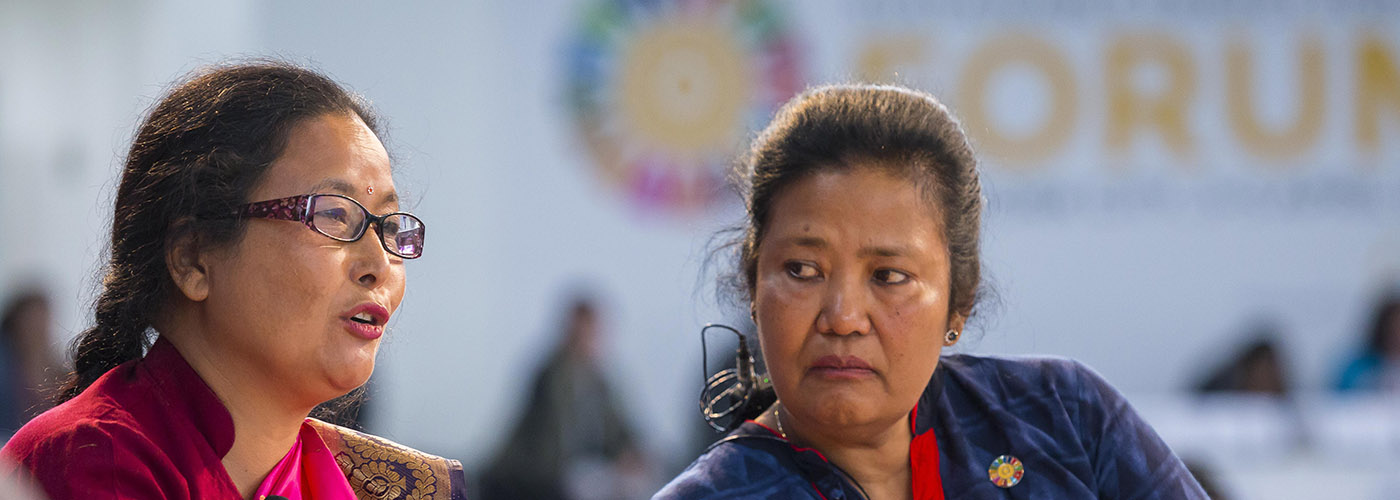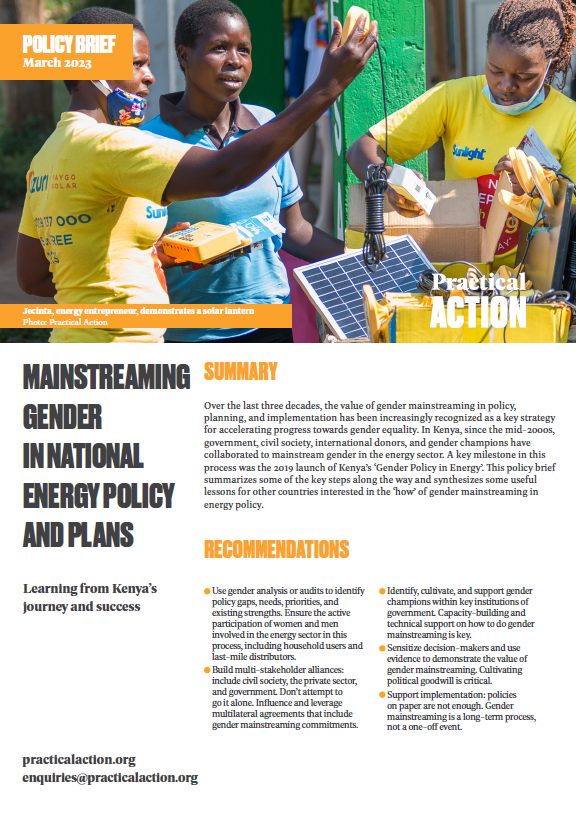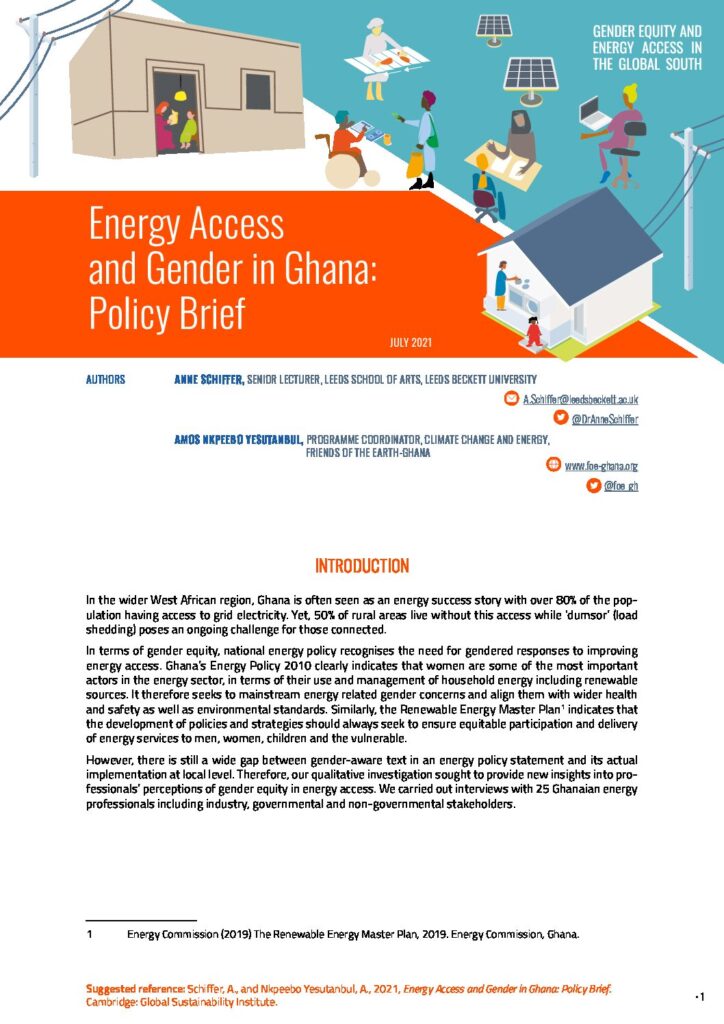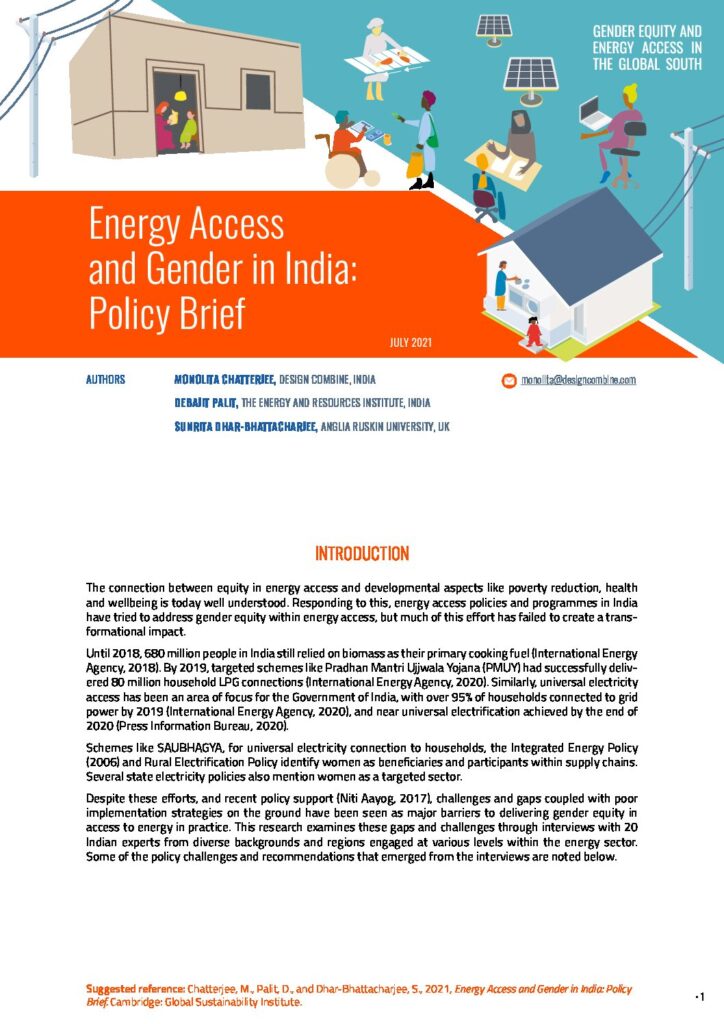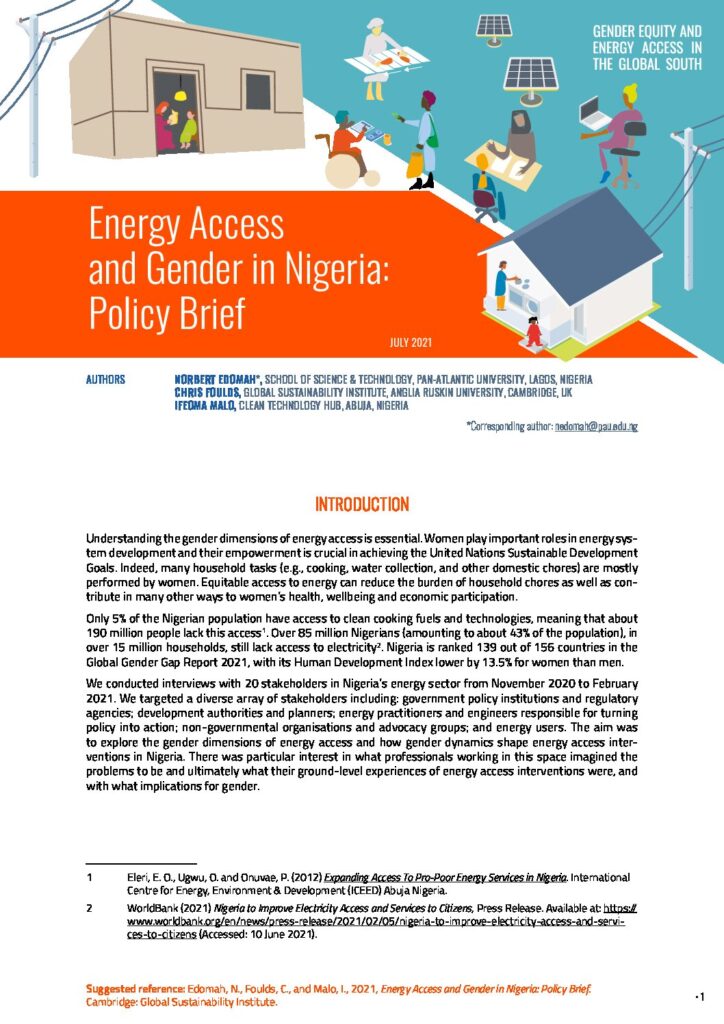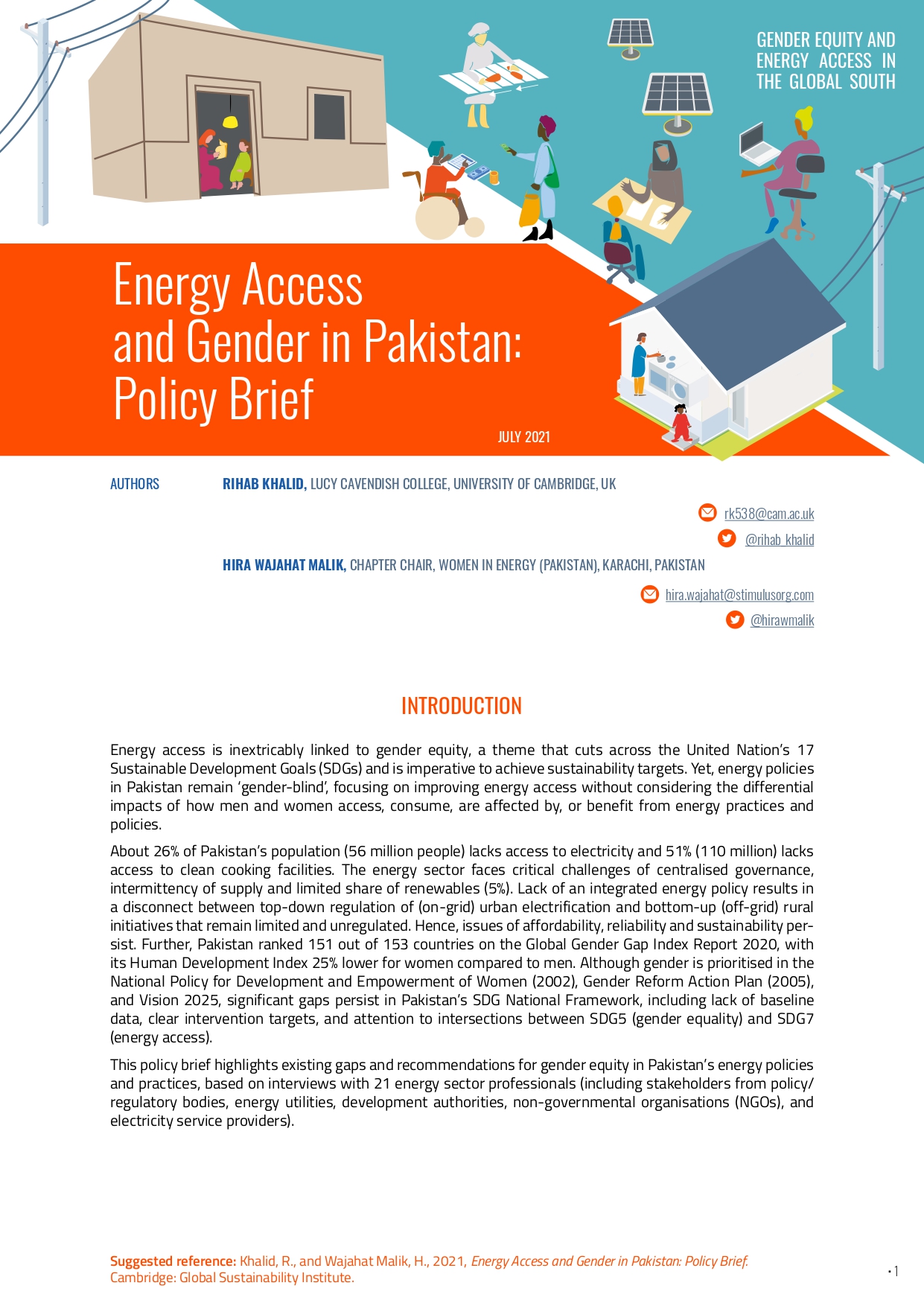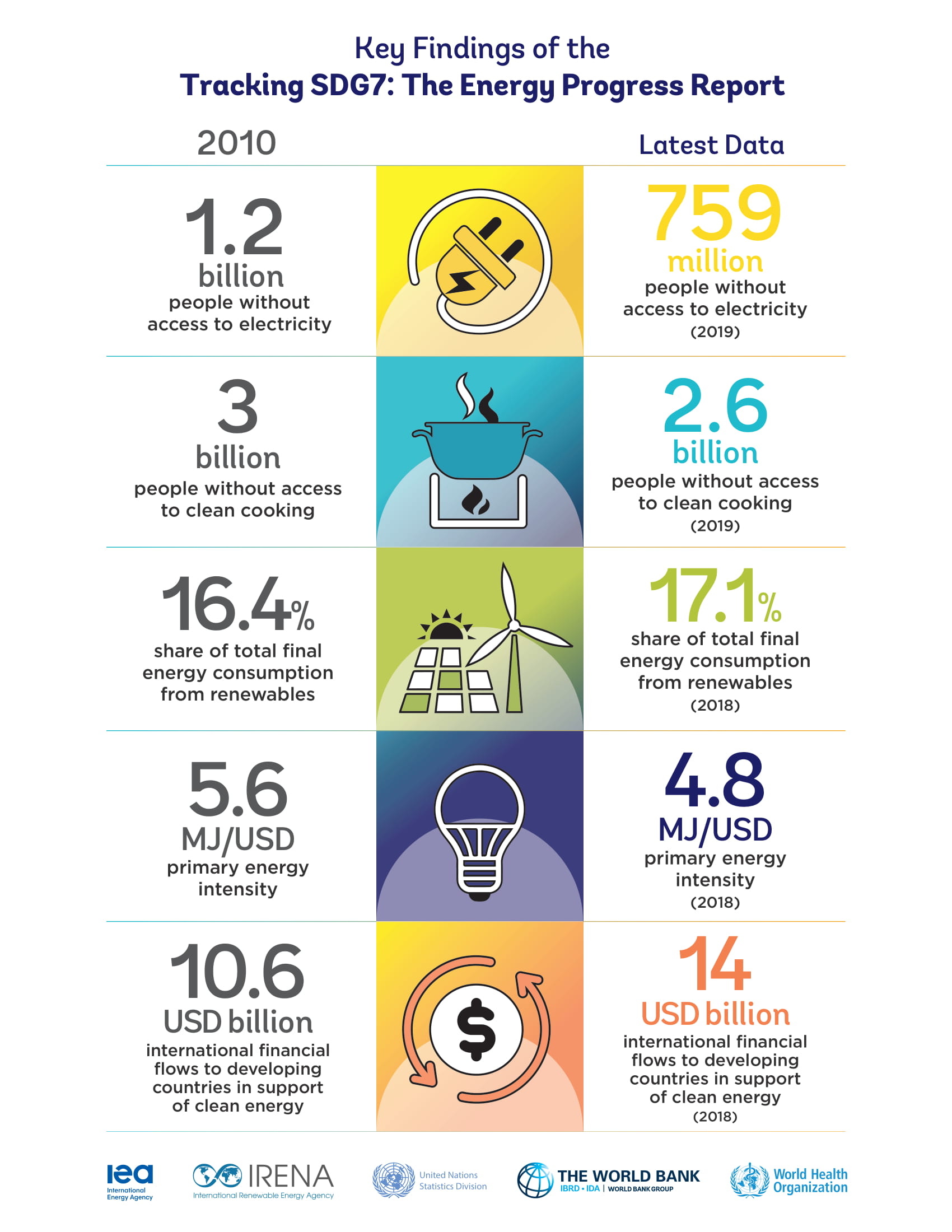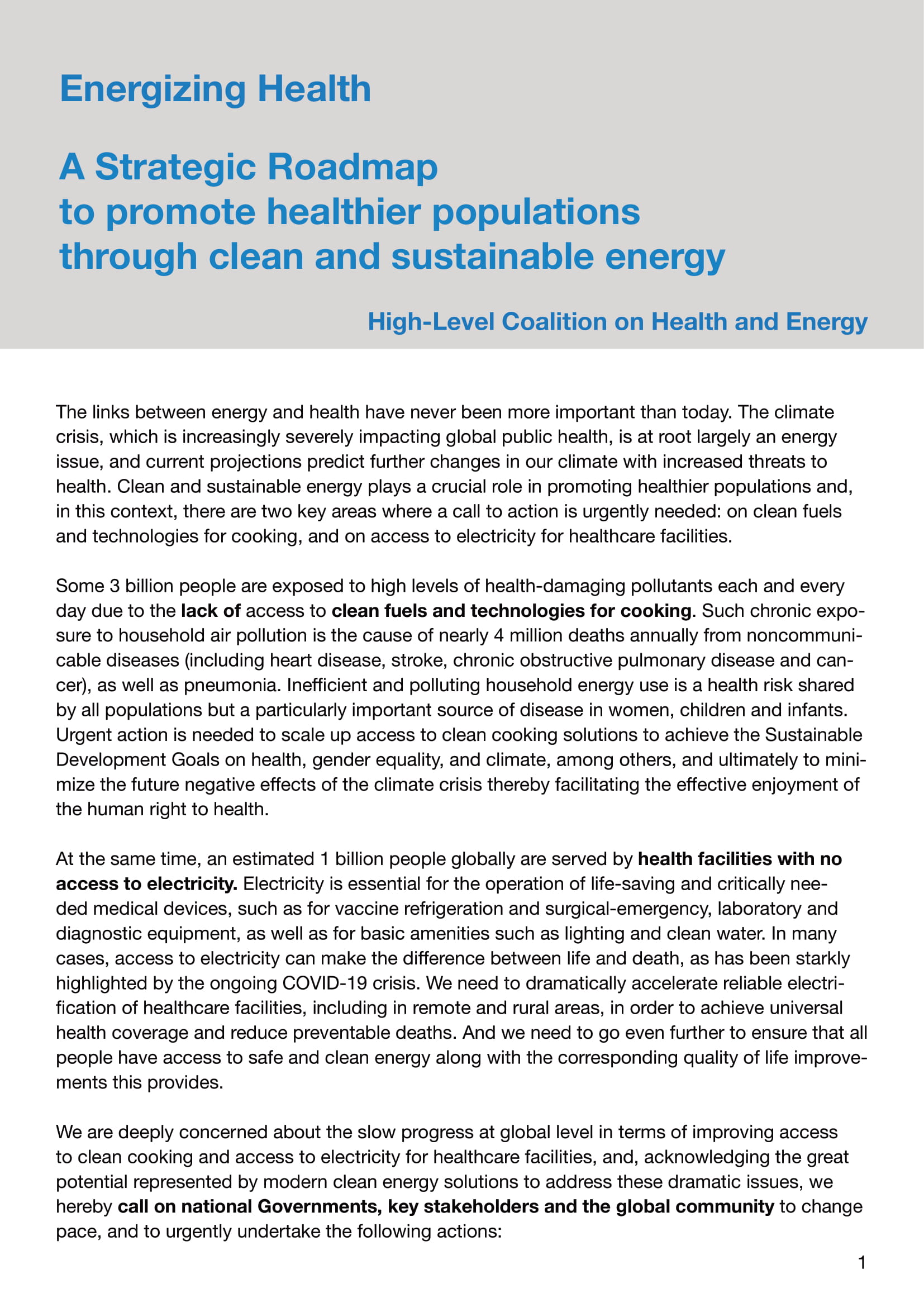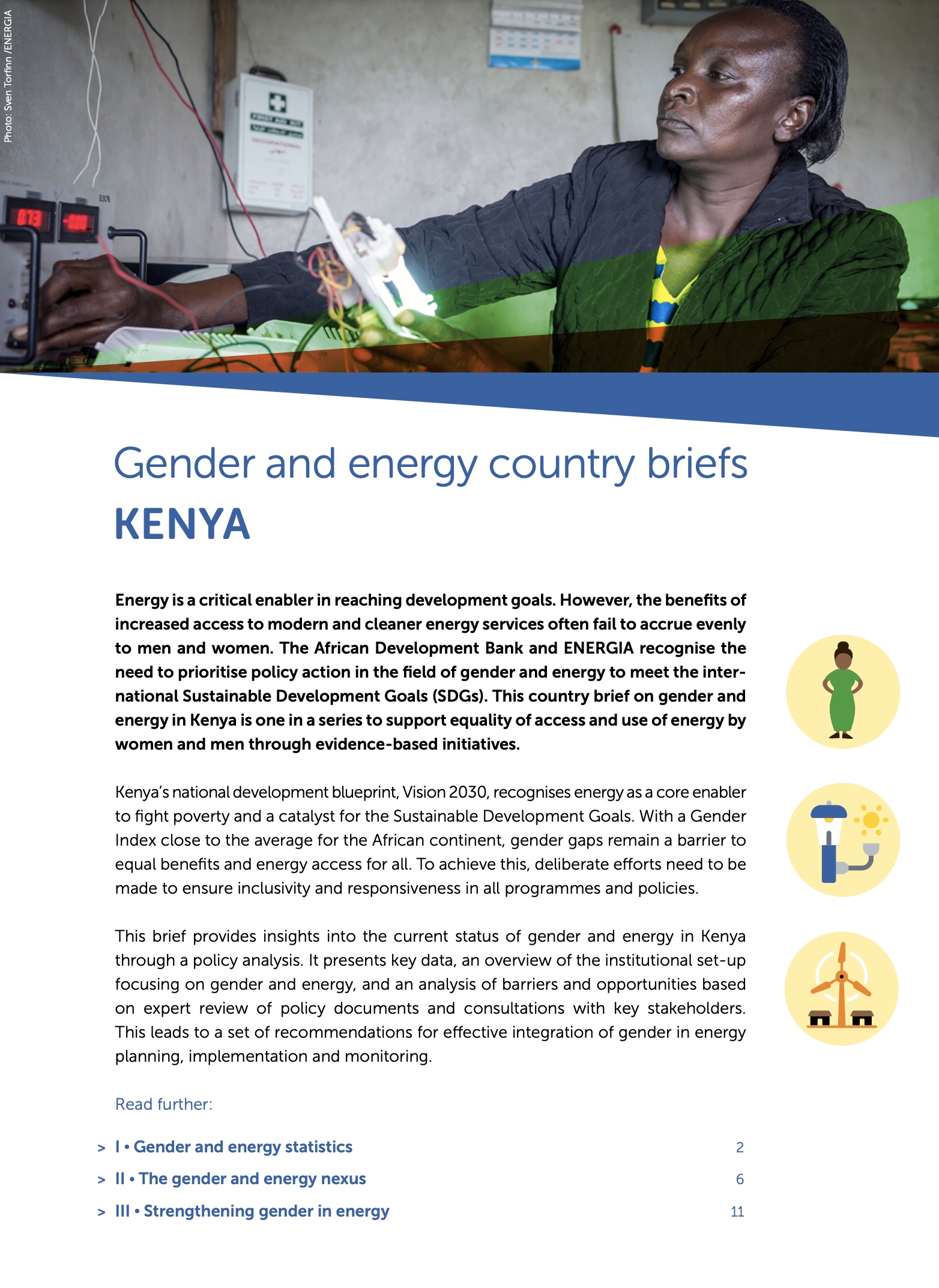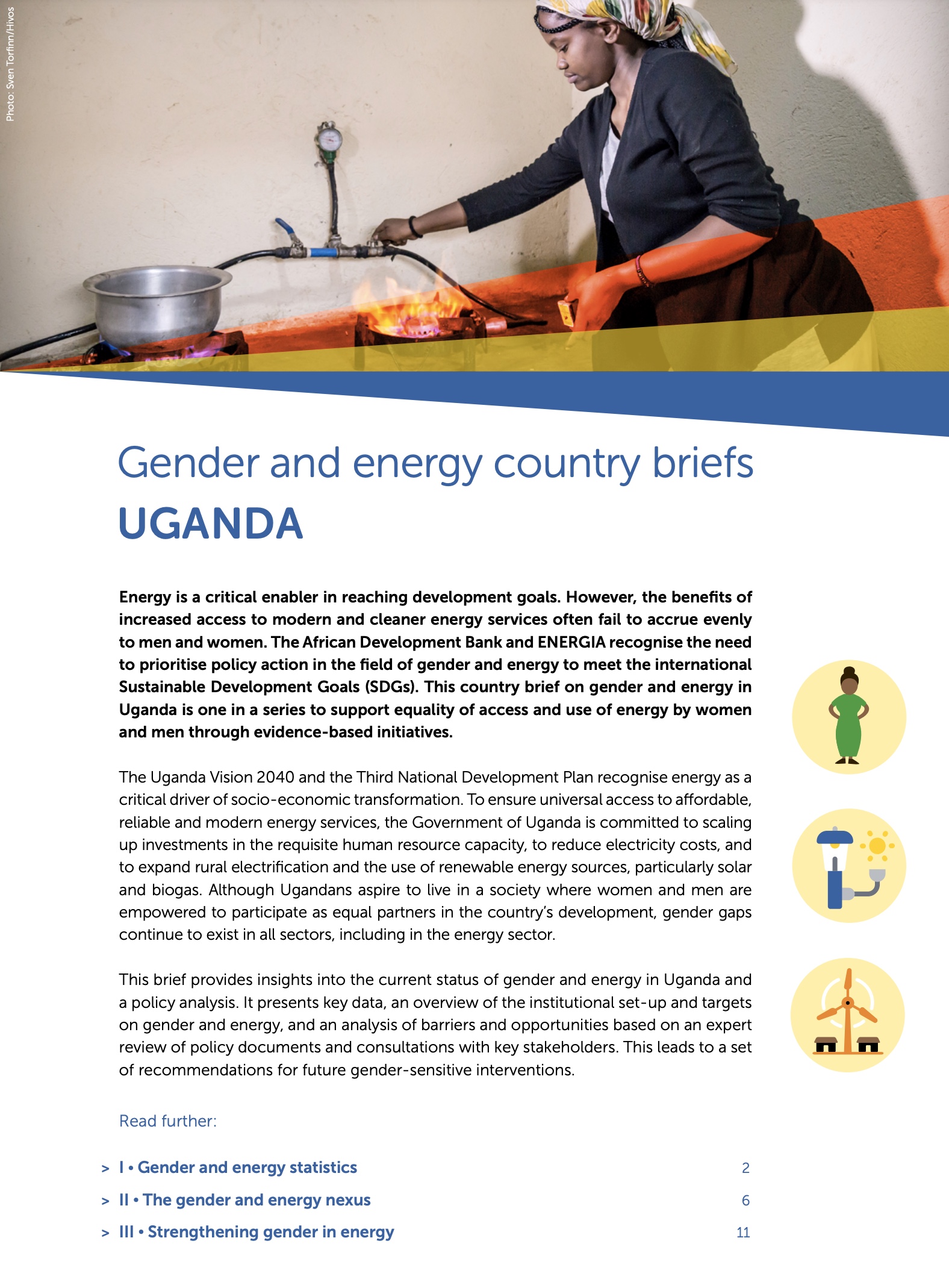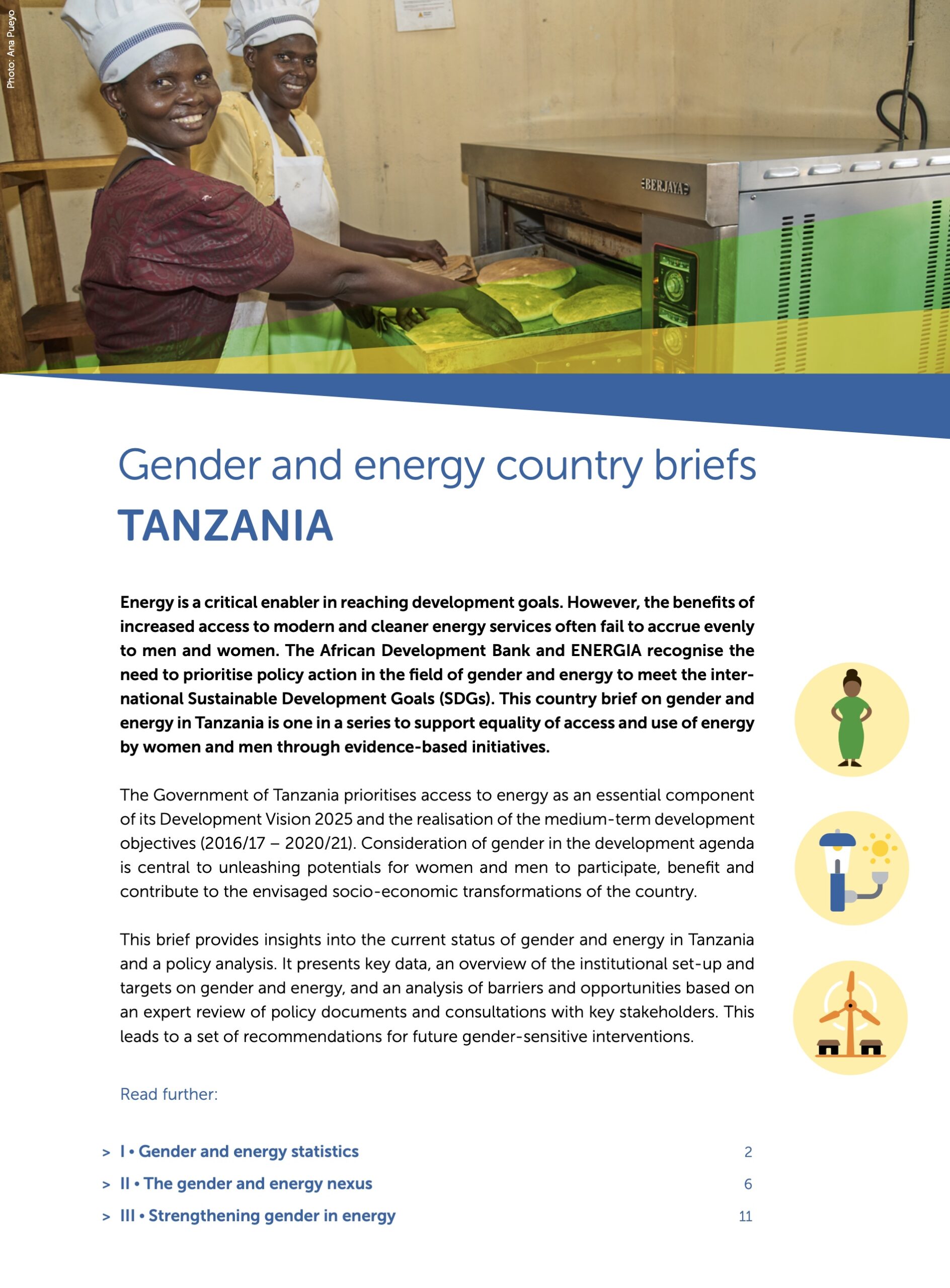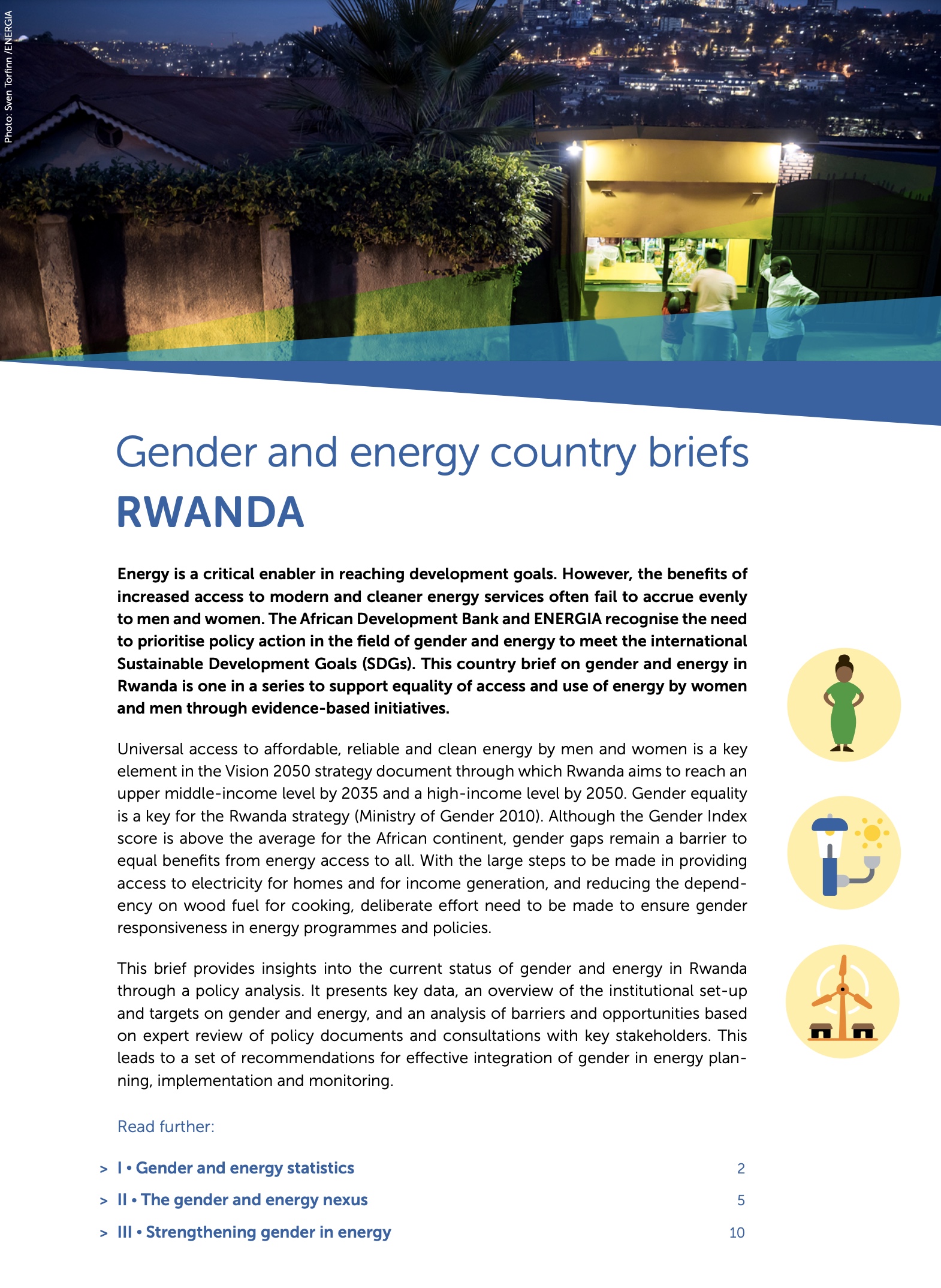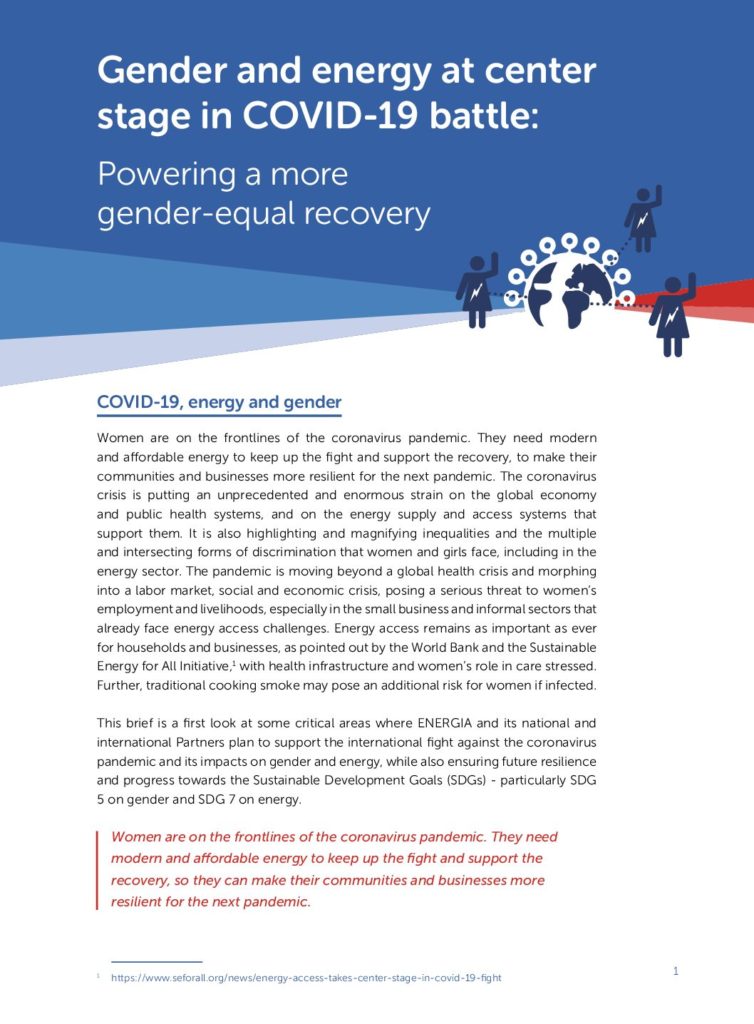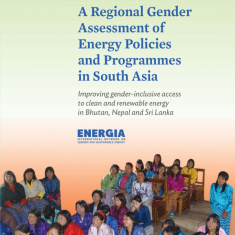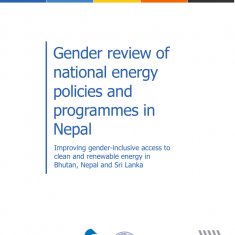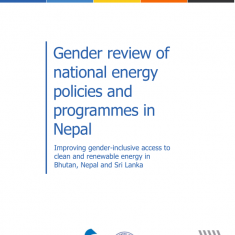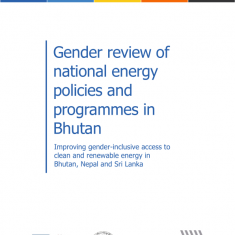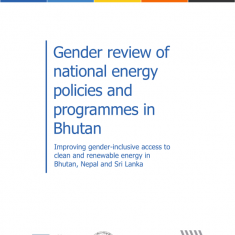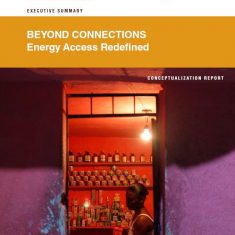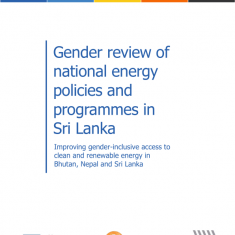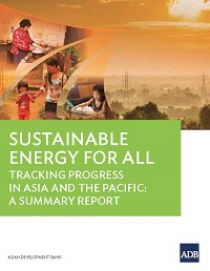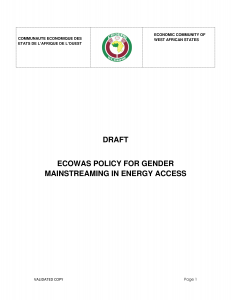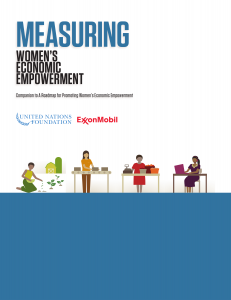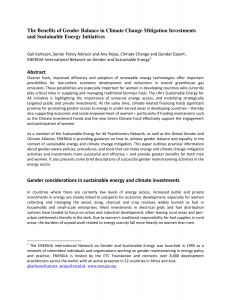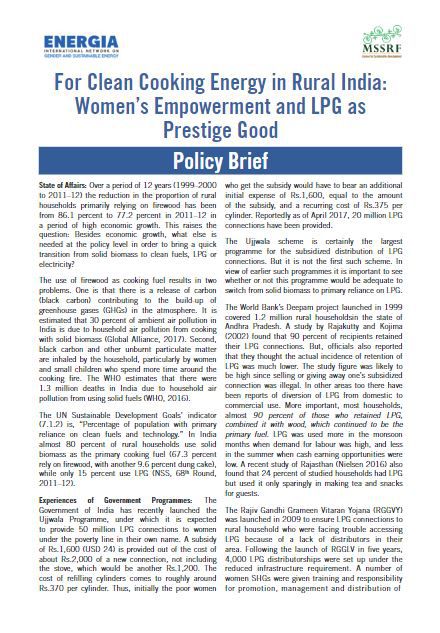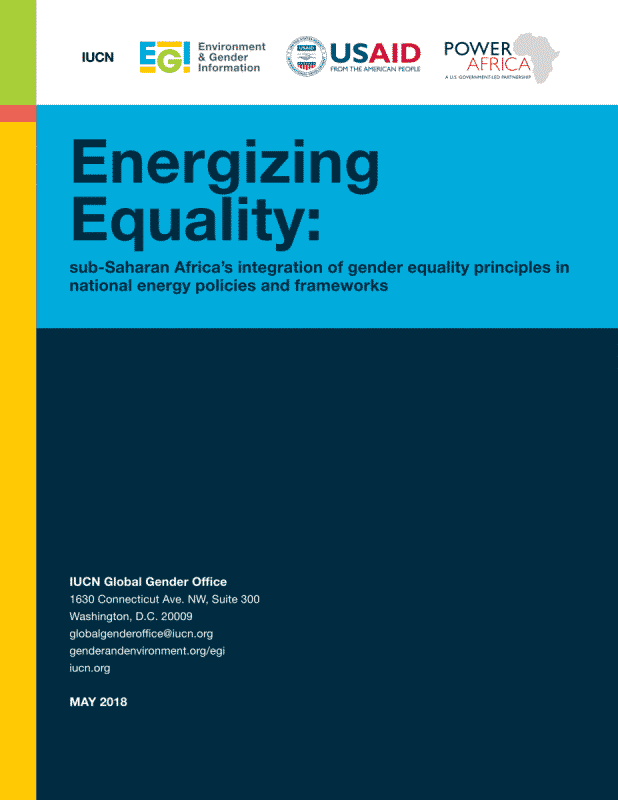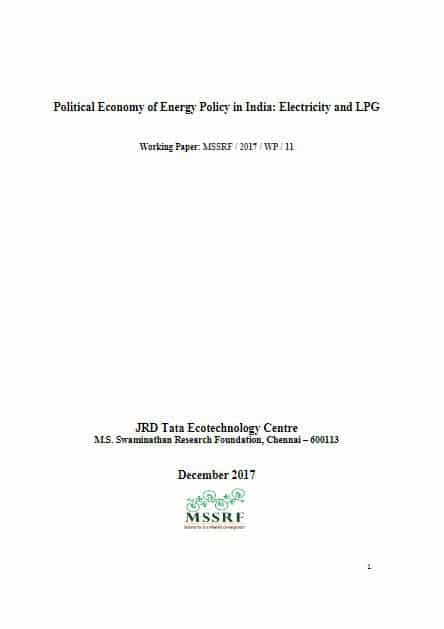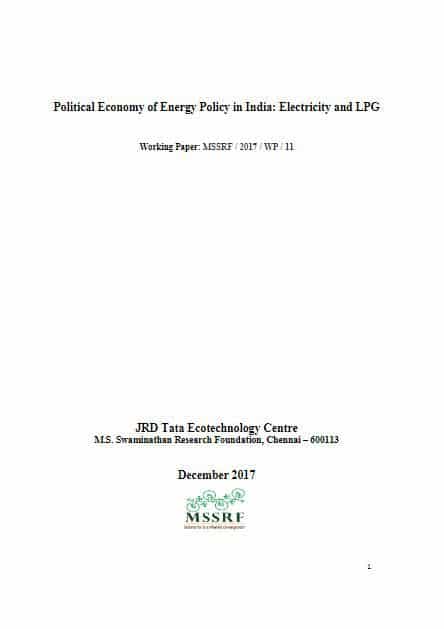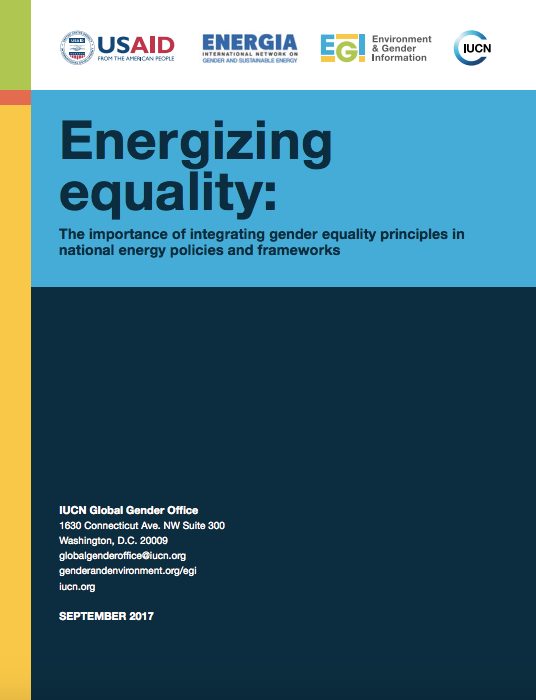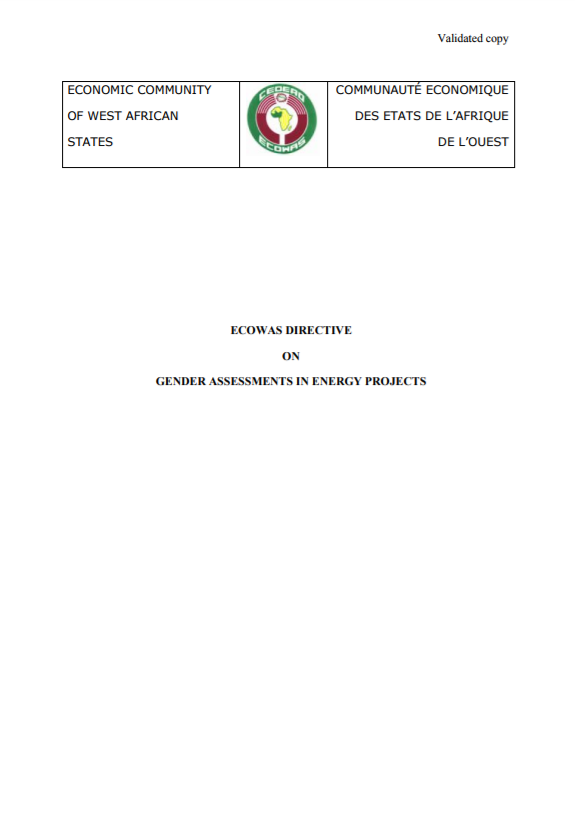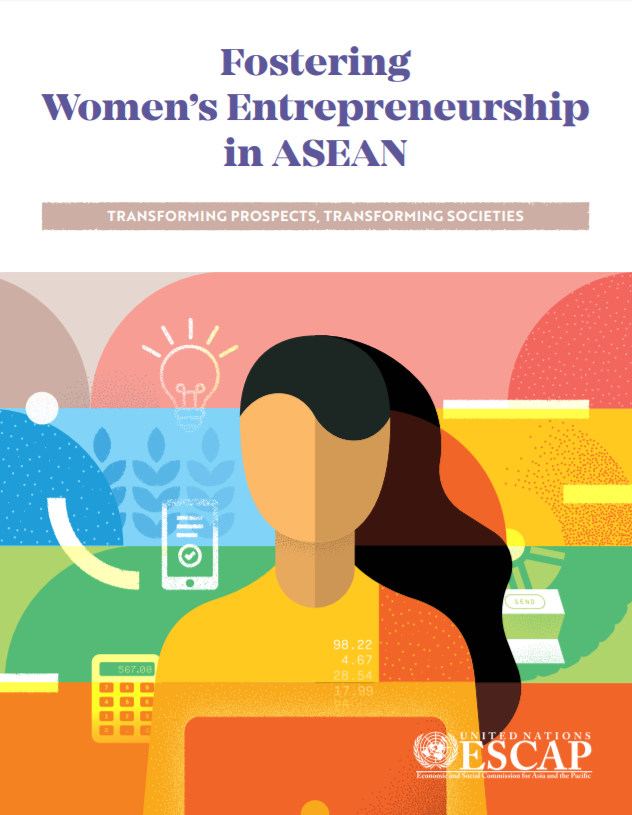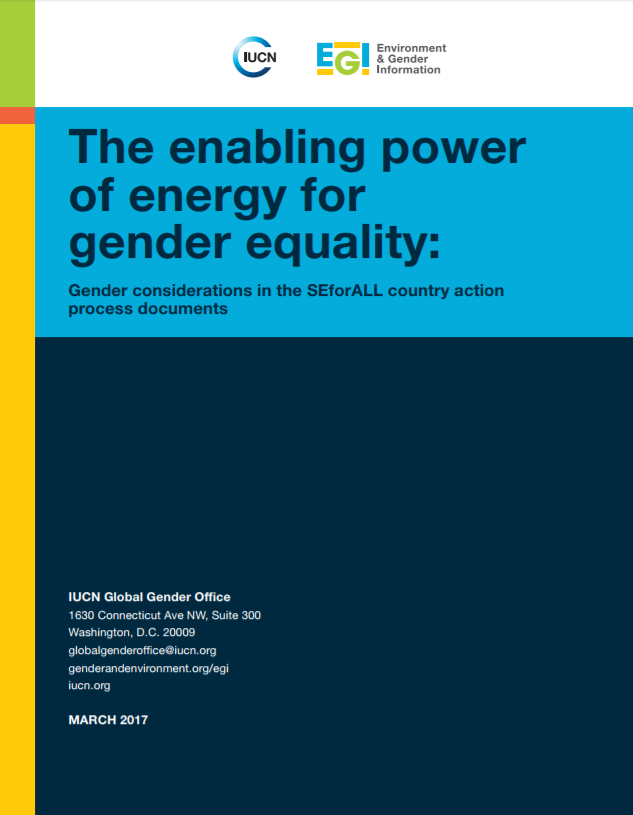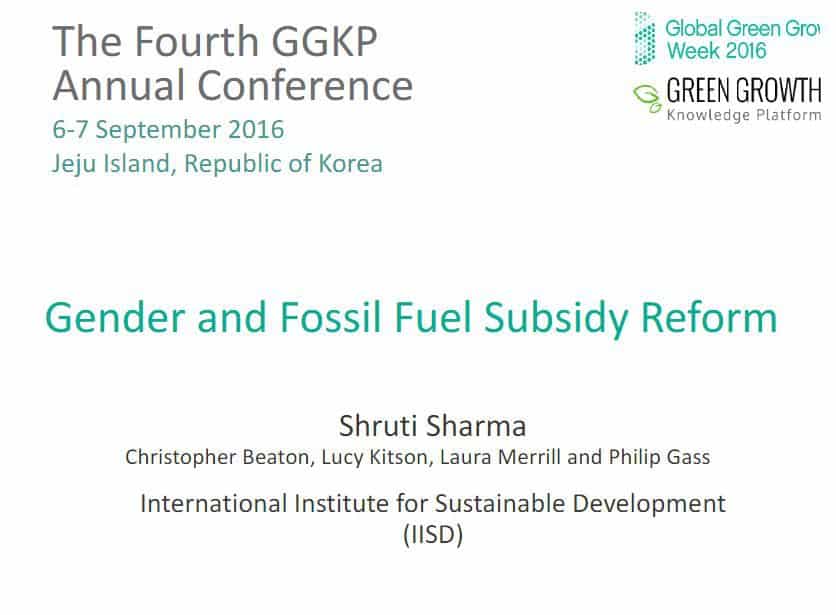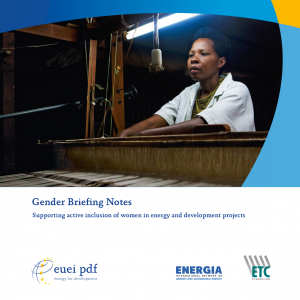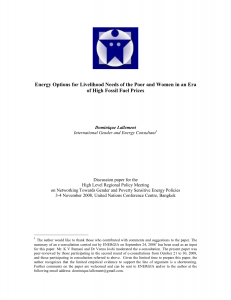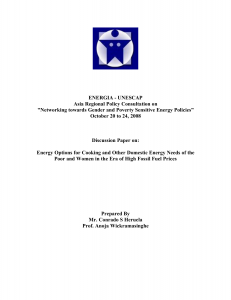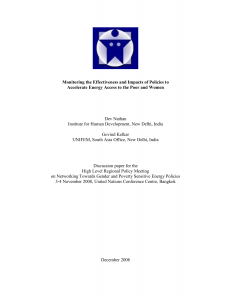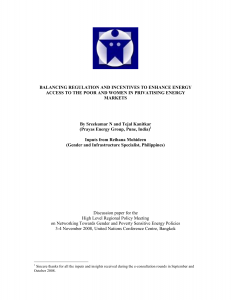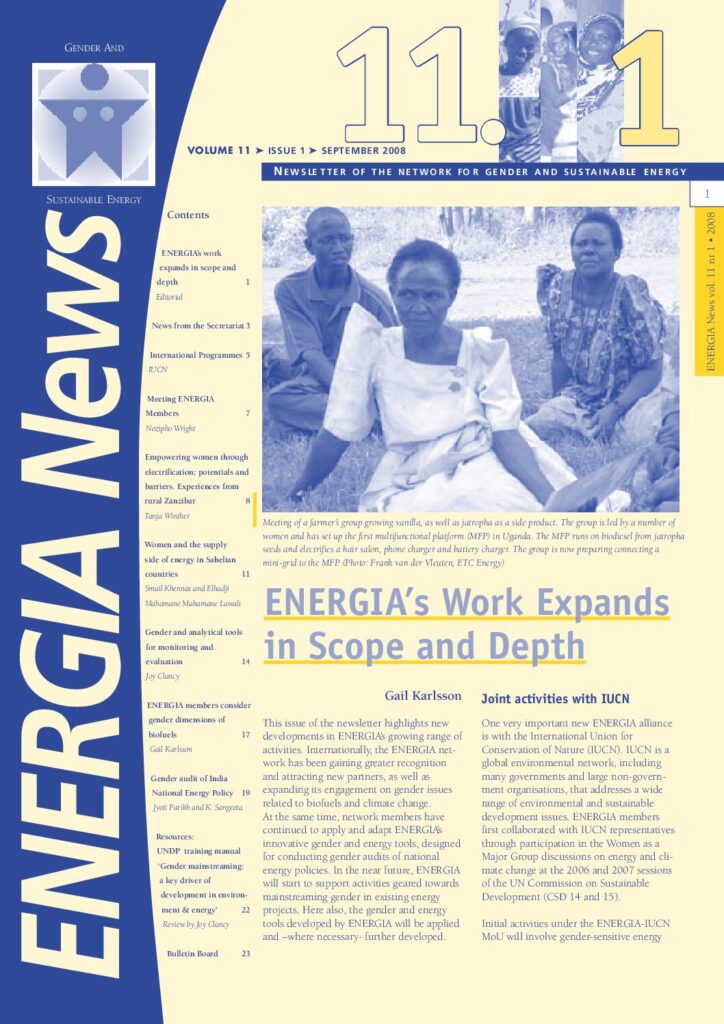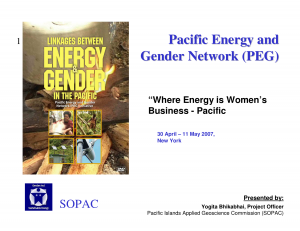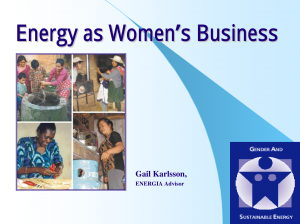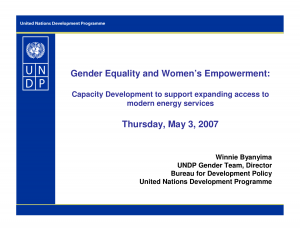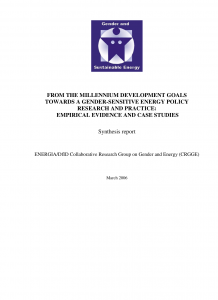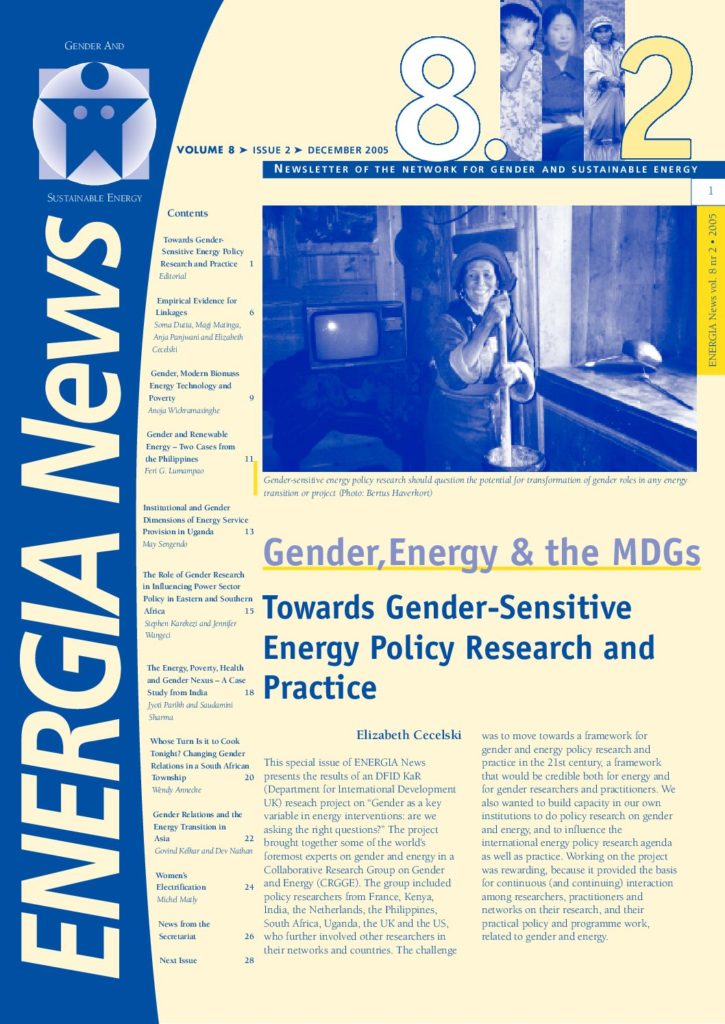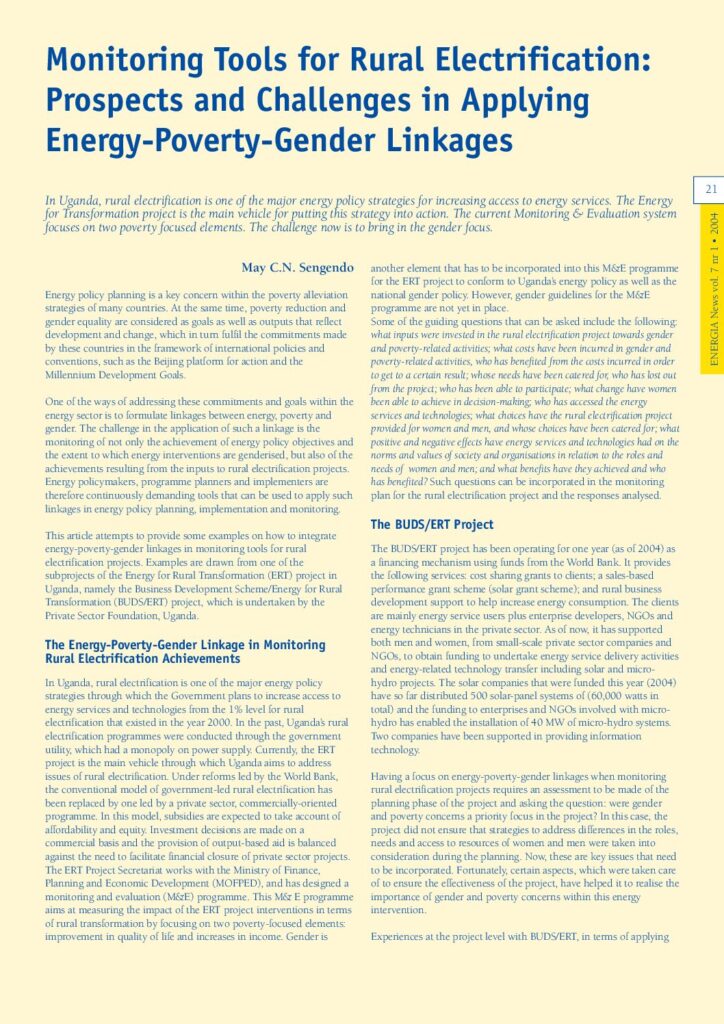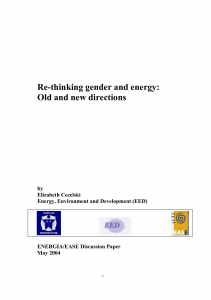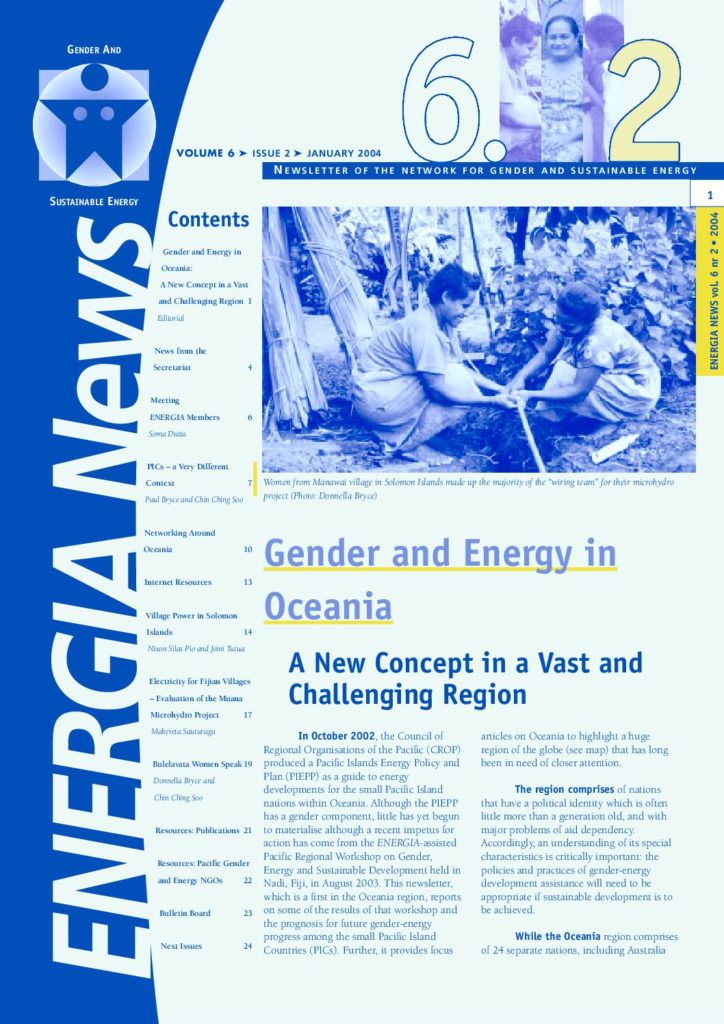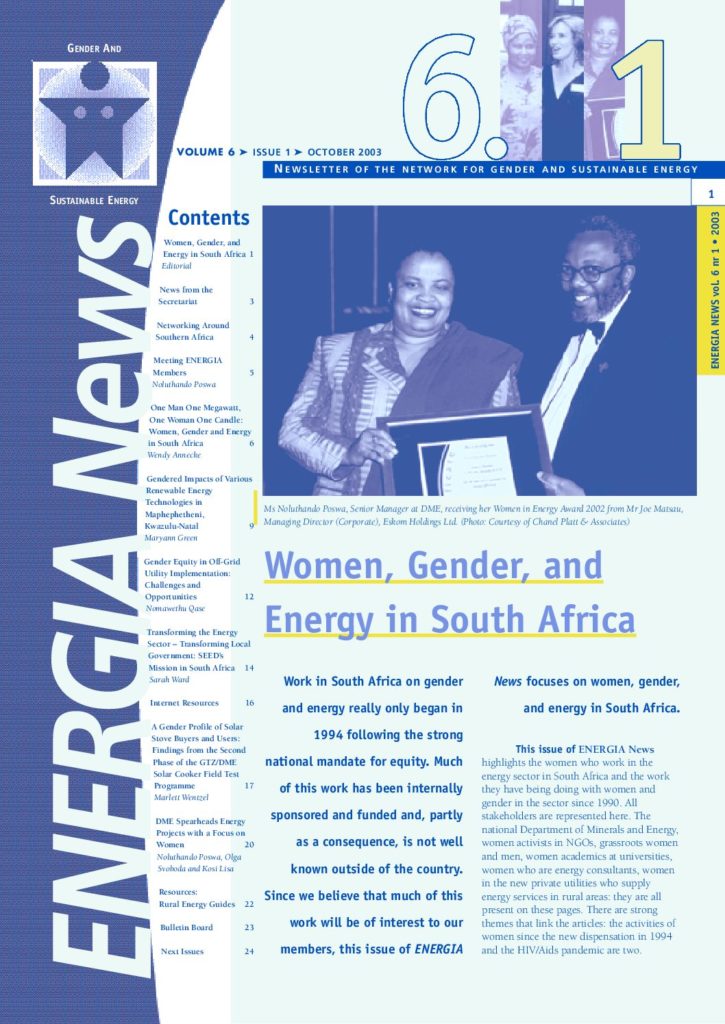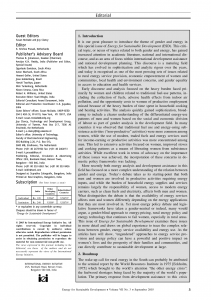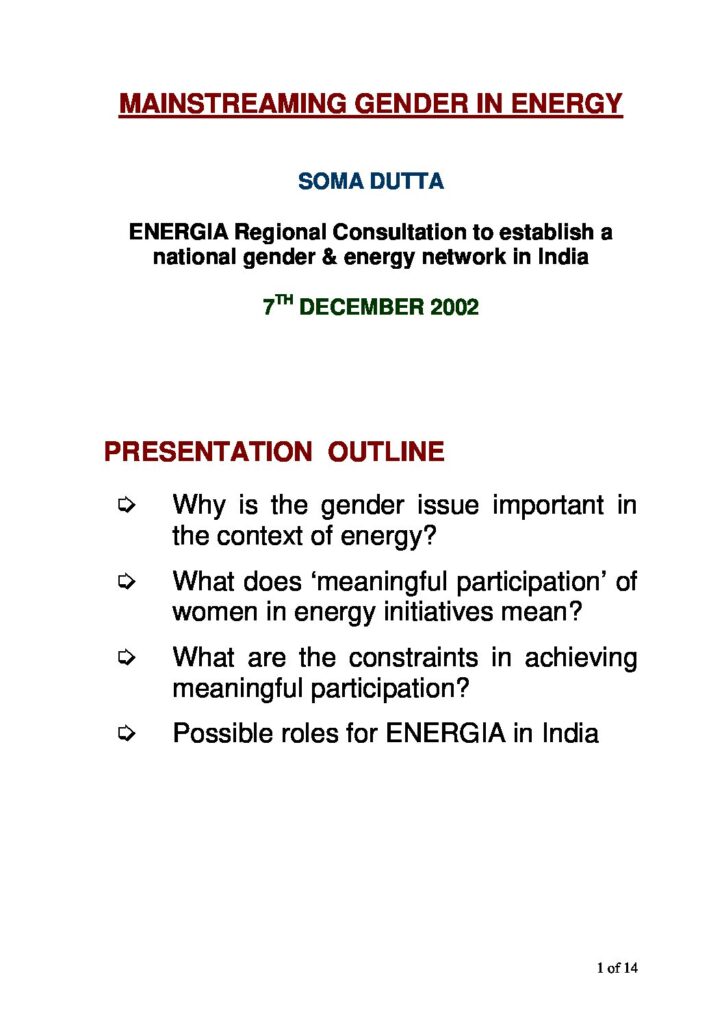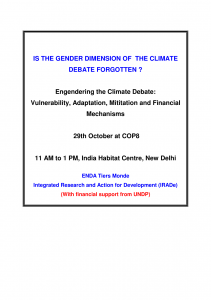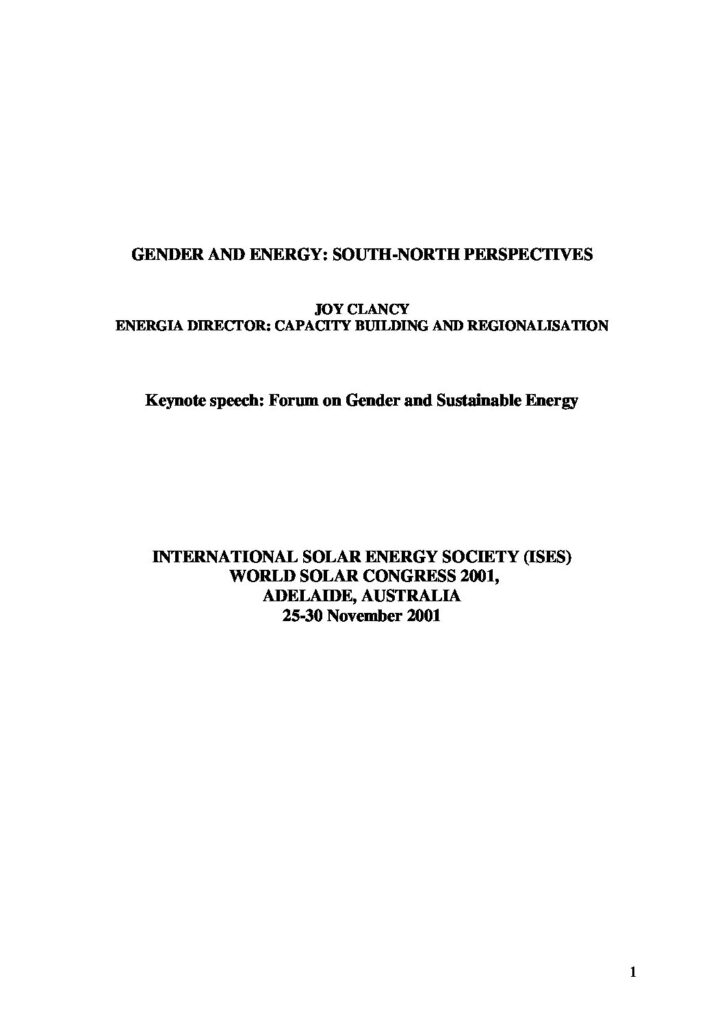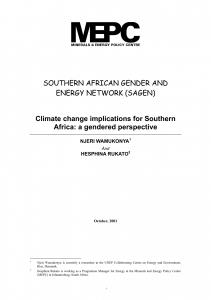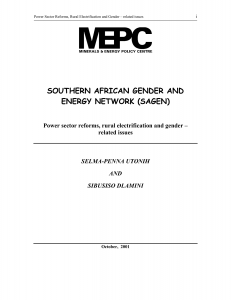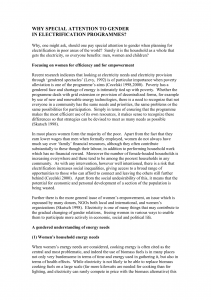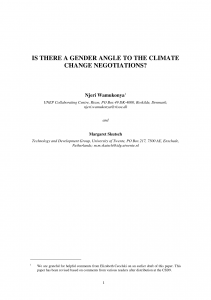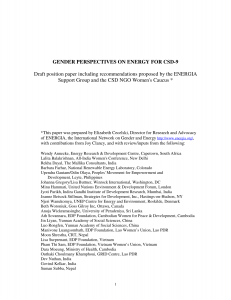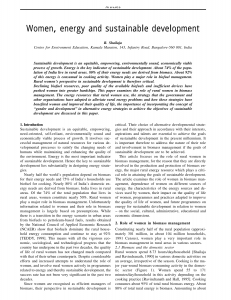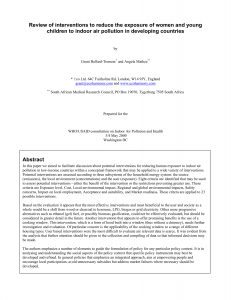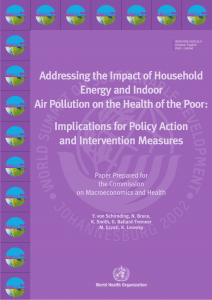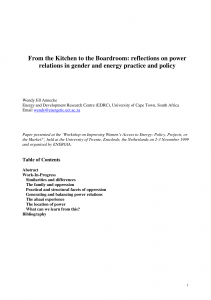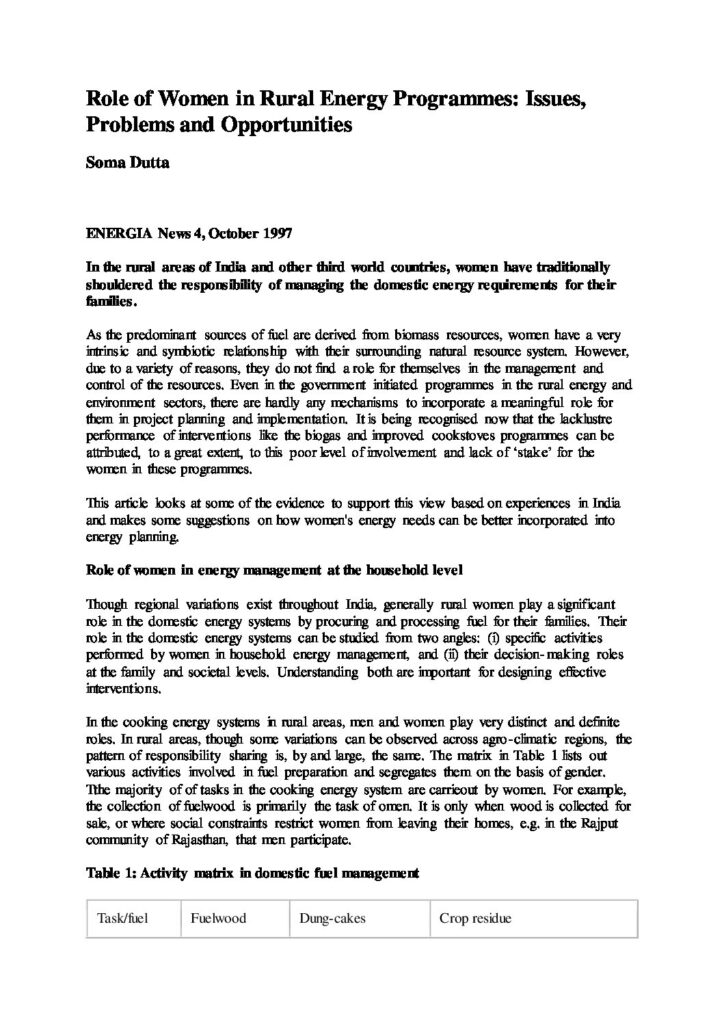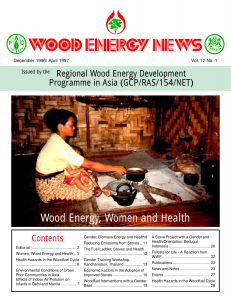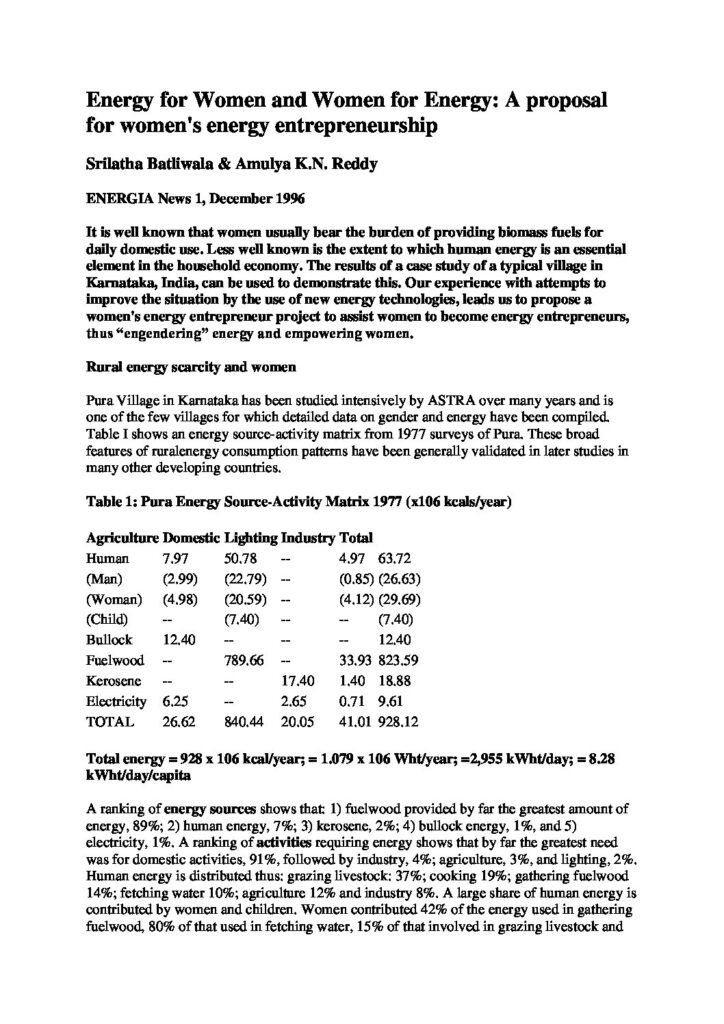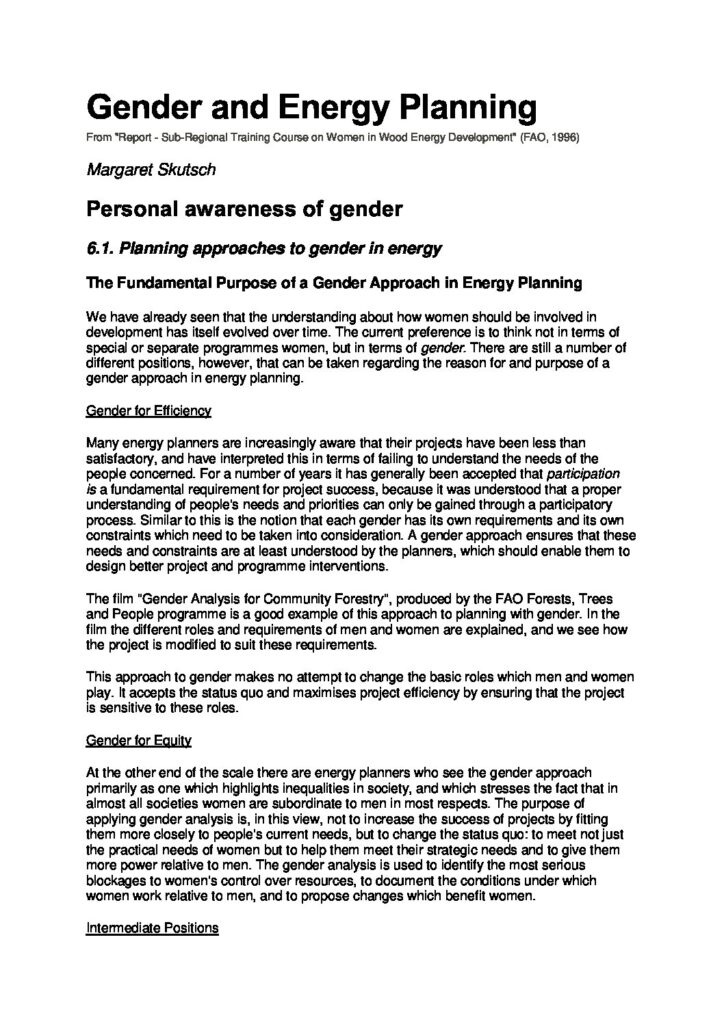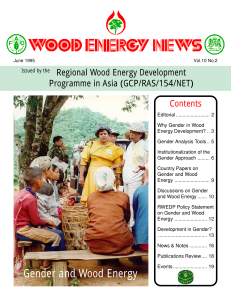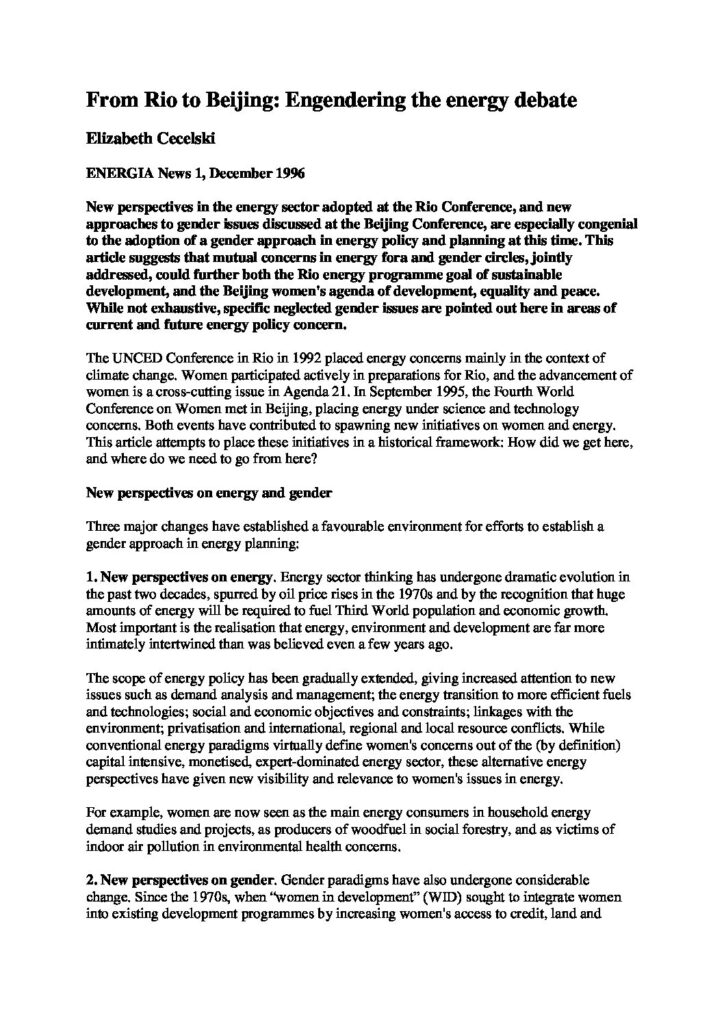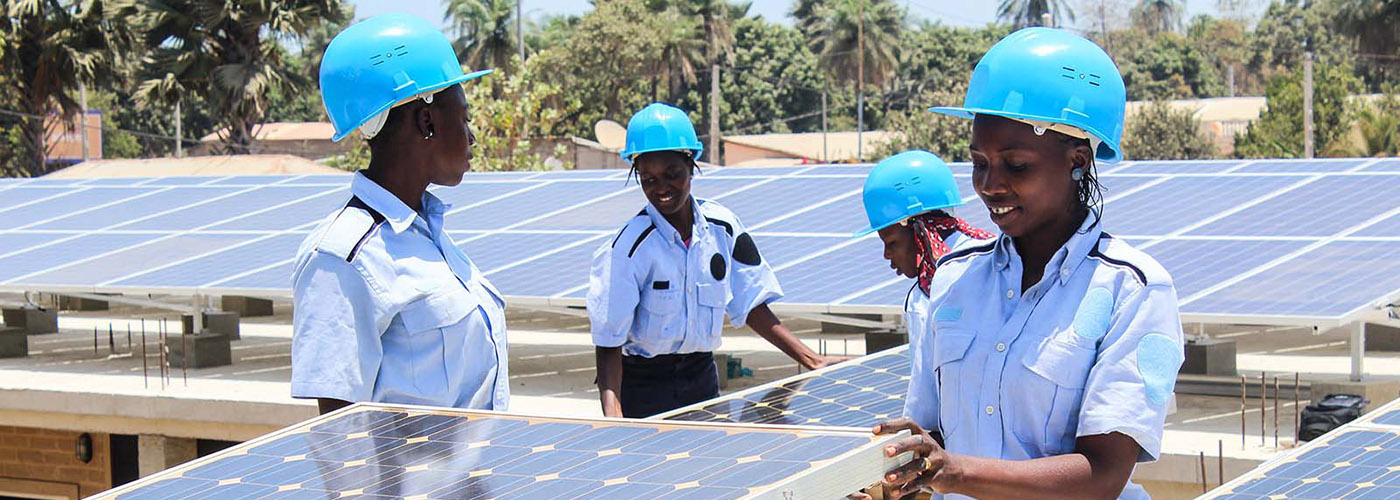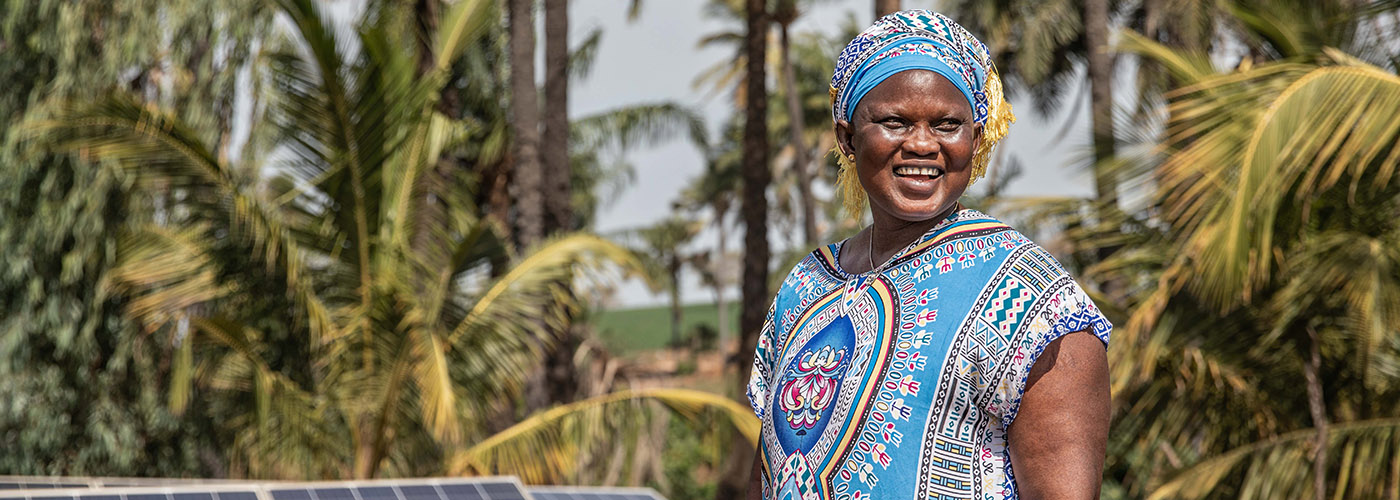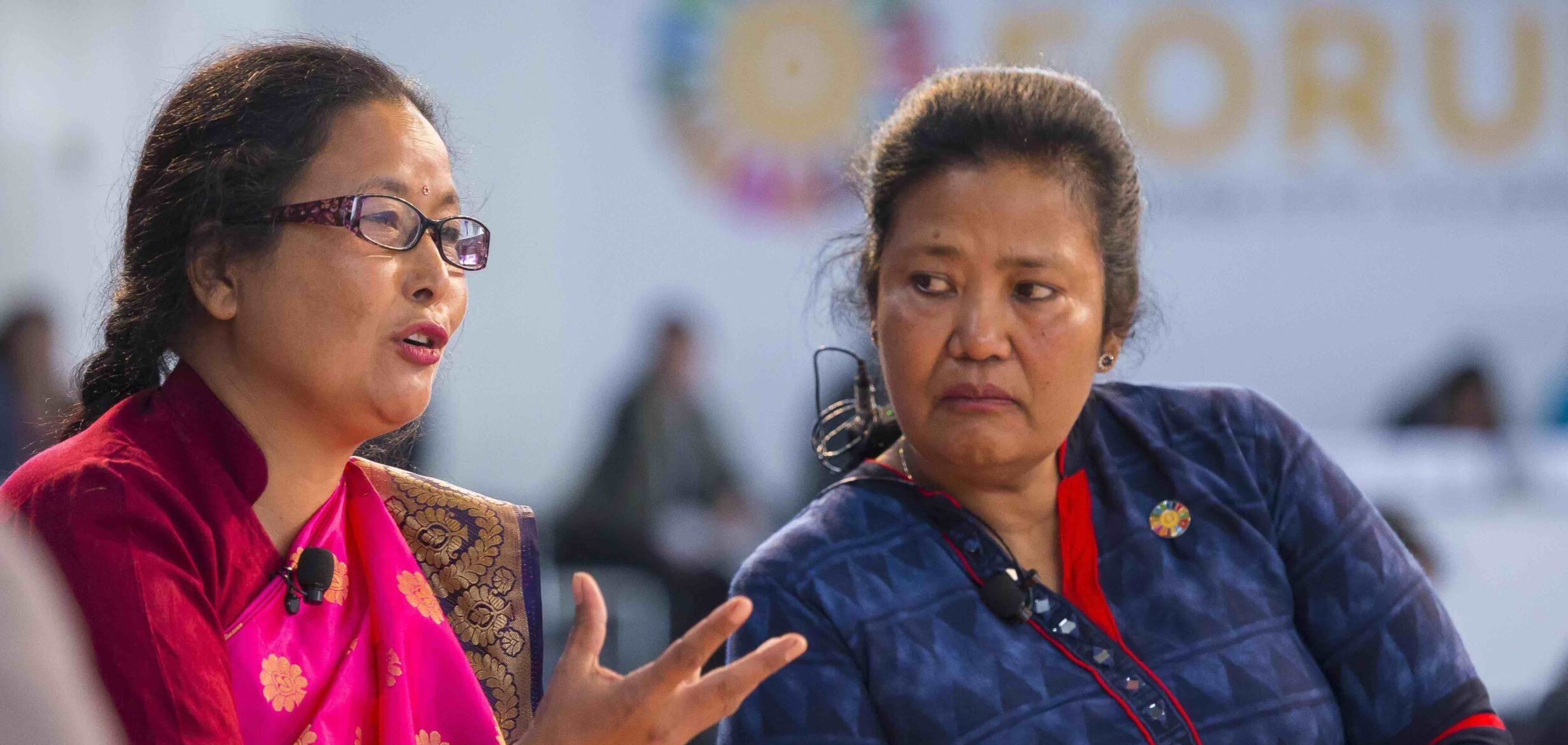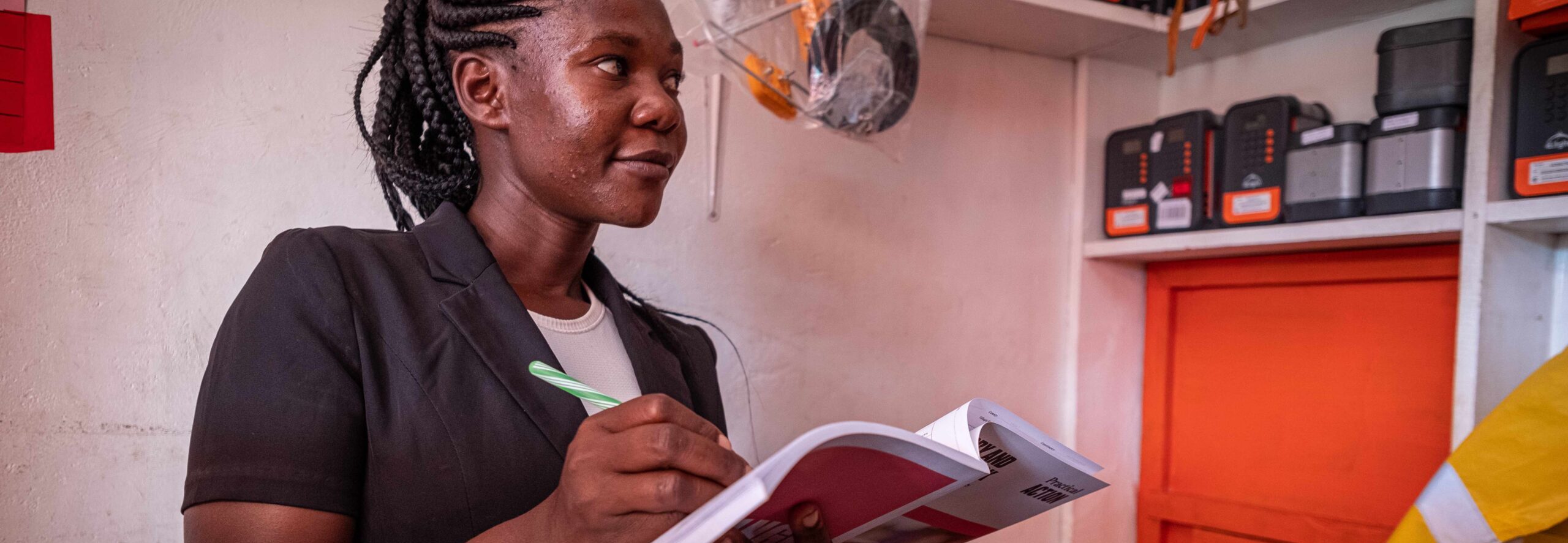Mainstreaming Gender in National Energy Policy Plans
Over the last three decades, the value of gender mainstreaming in policy, planning, and implementation has been increasingly recognized as a key strategy for accelerating progress towards gender equality. In Kenya, since the mid-2000s, government, civil society, international donors, and gender champions have collaborated to mainstream gender in the energy sector. A key milestone in…
Energy Access and Gender in Ghana: Policy Brief
In the wider West African region, Ghana is often seen as an energy success story with over 80% of the population having access to grid electricity. Yet, 50% of rural areas live without this access while ‘dumsor’ (load shedding) poses an ongoing challenge for those connected. In terms of gender equity, national energy policy recognises…
Energy Access and Gender in India: Policy Brief
The connection between equity in energy access and developmental aspects like poverty reduction, health and wellbeing is today well understood. Responding to this, energy access policies and programmes in India have tried to address gender equity within energy access, but much of this effort has failed to create a transformational impact. Until 2018, 680 million…
Energy Access and Gender in Nigeria: Policy Brief
Understanding the gender dimensions of energy access is essential. Women play important roles in energy system development and their empowerment is crucial in achieving the United Nations Sustainable Development Goals. Indeed, many household tasks (e.g., cooking, water collection, and other domestic chores) are mostly performed by women. Equitable access to energy can reduce the burden…
Energy Access and Gender in Pakistan: Policy Brief
Energy access is inextricably linked to gender equity, a theme that cuts across the United Nation’s 17 Sustainable Development Goals (SDGs) and is imperative to achieve sustainability targets. Yet, energy policies in Pakistan remain ‘gender-blind’, focusing on improving energy access without considering the differential impacts of how men and women access, consume, are affected by,…
Key Findings of the Tracking SDG7: The Energy Progress Report
The 2021 edition of Tracking SDG 7: The Energy Progress Report monitors and assesses achievements in the global quest for universal access to affordable, reliable, sustainable, and modern energy by 2030. The latest available data and selected energy scenarios reveal that at today’s rate of progress, the world is not on track to achieve SDG…
2021 Tracking SDG7 Executive Summary
The 2021 edition of Tracking SDG 7: The Energy Progress Report monitors and assesses achievements in the global quest for universal access to affordable, reliable, sustainable, and modern energy by 2030. The latest available data and selected energy scenarios reveal that at today’s rate of progress, the world is not on track to achieve SDG…
Energizing Health: A Strategic Roadmap to promote healthier populations through clean and sustainable energy
The links between energy and health have never been more important than today. The climate crisis, which is increasingly severely impacting global public health, is at root largely an energy issue, and current projections predict further changes in our climate with increased threats to health. Clean and sustainable energy plays a crucial role in promoting…
Gender and energy country brief – Kenya
Energy is a critical enabler in reaching development goals. However, the benefits of increased access to modern and cleaner energy services often fail to accrue evenly to men and women. The African Development Bank and ENERGIA recognise the need to prioritise policy action in the field of gender and energy to meet the inter-national Sustainable Development…
Gender and energy country briefs – Uganda
Energy is a critical enabler in reaching development goals. However, the benefits of increased access to modern and cleaner energy services often fail to accrue evenly to men and women. The African Development Bank and ENERGIA recognise the need to prioritise policy action in the field of gender and energy to meet the international Sustainable…
Gender and energy country briefs – Tanzania
Energy is a critical enabler in reaching development goals. However, the benefits of increased access to modern and cleaner energy services often fail to accrue evenly to men and women. The African Development Bank and ENERGIA recognise the need to prioritise policy action in the field of gender and energy to meet the international Sustainable…
Gender and energy country briefs – Rwanda
Energy is a critical enabler in reaching development goals. However, the benefits of increased access to modern and cleaner energy services often fail to accrue evenly to men and women. The African Development Bank and ENERGIA recognise the need to prioritise policy action in the field of gender and energy to meet the international Sustainable…
Gender and energy at center stage in COVID-19 battle: Powering a more gender-equal recovery
Women are on the frontlines of the coronavirus pandemic. They need modern and affordable energy to keep up the fight and support the recovery, to make their communities and businesses more resilient for the next pandemic. The coronavirus crisis is putting an unprecedented and enormous strain on the global economy and public health systems, and…
A Regional Gender Assessment of Energy Policies and Programmes in South Asia Improving gender-inclusive access to clean and renewable energy in Bhutan, Nepal and Sri Lanka
Improving Gender-Inclusive Access to Clean and Renewable Energy in Bhutan, Nepal and Sri Lanka is an Asian Development Bank (ADB)-supported project(JFPR Grant-9158 REG). The project aimed to increase rural poor women’s access to affordable and reliable clean energy sources and technologies in selected project sites in Bhutan, Nepal and Sri Lanka. It was implemented by…
Gender review of national energy policies and programmes in Nepal Improving gender-inclusive access to clean and renewable energy in Bhutan, Nepal and Sri Lanka
Improving gender-inclusive access to clean and renewable energy in Bhutan, Nepal and Sri Lanka is an Asian Development Bank (ADB) supported project (JFPR Grant-9158 REG), being implemented by the ETC Foundation, Netherlands, in association with Centre for Rural Technology (CRT/N) (Nepal country partner). The project aims to increase rural poor women’s access to affordable and…
Gender review of national energy policies and programmes in Nepal Improving gender-inclusive access to clean and renewable energy in Bhutan, Nepal and Sri Lanka
Improving gender-inclusive access to clean and renewable energy in Bhutan, Nepal and Sri Lanka is an Asian Development Bank (ADB) supported project (JFPR Grant-9158 REG), being implemented by the ETC Foundation, Netherlands, in association with Centre for Rural Technology (CRT/N) (Nepal country partner). The project aims to increase rural poor women’s access to affordable and…
Gender review of national energy policies and programmes in Bhutan Improving gender-inclusive access to clean and renewable energy in Bhutan, Nepal and Sri Lanka
The Improving Gender-Inclusive Access to Clean and Renewable Energy in Bhutan, Nepal and Sri Lanka is Asian Development Bank (ADB) supported project (JFPR Grant-9158 REG). The project aims to increase rural poor women’s access to affordable and reliable clean energy sources and technologiesin selected project sites in Bhutan, Nepal and Sri Lanka. This is a…
Gender review of national energy policies and programmes in Bhutan Improving gender-inclusive access to clean and renewable energy in Bhutan, Nepal and Sri Lanka
The Improving Gender-Inclusive Access to Clean and Renewable Energy in Bhutan, Nepal and Sri Lanka is Asian Development Bank (ADB) supported project (JFPR Grant-9158 REG). The project aims to increase rural poor women’s access to affordable and reliable clean energy sources and technologiesin selected project sites in Bhutan, Nepal and Sri Lanka. This is a…
Renewables 2016 Global Status Report
Read more at: http://www.ren21.net/status-of-renewables/global-status-report/ DOWNLOAD
Beyond Connections: Energy Access Redefined
Access to energy is a key enabler of socioeconomic development. Energy is needed for multifarious applications across households, productive uses, and community infrastructure. “Universal access to modern energy by 2030” has been proposed as one of the three key pillars of the Sustainable Energy for All (SE4All) program, an initiative co-chaired by the United Nations…
Gender review of national energy policies and programmes in Sri Lanka Improving gender-inclusive access to clean and renewable energy in Bhutan, Nepal and Sri Lanka
Improving gender-inclusive access to clean and renewable energy in Bhutan, Nepal and Sri Lanka is an Asian Development Bank (ADB) supported project (JFPR Grant-9158 REG). The project aims to increase rural poor women’s access to affordable and reliable clean energy sources and technologies in selected project sites in Bhutan, Nepal and Sri Lanka. This report…
Sustainable Energy for All Status Report: Tracking Progress in Asia and the Pacific
This report reviews the early work of the AP-SE4All, and the conditions of the developing Asia and Pacific countries it is working with. It charts preliminary progress, and assesses the policy environment which the work to achieve the SE4All targets will operate within. Uniquely, this report highlights the nexus of issues involving women, children, and…
ECOWAS policy for gender mainstreaming in energy access
Countries of the Economic Community of West African States (ECOWAS), represented by the Ministries of Energy, validated on 4-5 June 2015 in Dakar, Senegal, the regional Policy to mainstream gender in all energy programmes, projects and initiatives implemented in the Member States, including large scale energy infrastructure projects and investments. Described as “revolutionary” by the…
Measuring Women’s Economic Empowerment
Design challenges are common to most program evaluations, but this is especially true for programs that measure women’s economic empowerment. This is because of the interdependence between women’s economic and social roles, which influences their business choices and returns to those businesses. For example, because women have significant family responsibilities, they may have different goals…
The Benefits of Gender Balance in Climate Change Mitigation Investments and Sustainable Energy Initiatives
Cleaner fuels, improved efficiency and adoption of renewable energy technologies offer important possibilities for low-carbon economic development and reductions in overall greenhouse gas emissions. These possibilities are especially important for women in developing countries who currently play critical roles in supplying and managing traditional biomass fuels. The UN’s Sustainable Energy for All initiative is highlighting…
Fostering women’s entrepreneurship in ASEAN
In its recent publication “Fostering Women’s Entrepreneurship in ASEAN: Transforming Prospects, Transforming Societies” the United Nations Economic and Social Commission for Asia and the Pacific (ESCAP) proposes critical actions that can be taken by ASEAN Governments to address the particular constraints facing women entrepreneurs. Those actions are foreseen to be taken in conjunction with other…
The enabling power of energy for gender equality: Gender considerations in the SEforALL country action process documents
This assessment aims to identify and understand the degree to which gender considerations are addressed in the three types of documents prepared as part of the SEforALL country action process: rapid assessment and gap analyses (RAGAs), action agendas (AAs) and investment prospectuses (IPs). Findings offer insights into the ways that governments recognize gender considerations in…
Gender Briefing Notes: Supporting active inclusion of women in energy and development projects
This brochure has been developed to assist EUEI PDF partners, consultants and energy practitioners to ensure equal benefits for men and women in development projects in the energy sector, as well as to ensure a gender sensitive approach in ongoing and future interventions. The Briefing Notes will provide the reader with gender dimensions of the…
Energy Options for Livelihood Needs of the Poor and Women in an Era of High Fossil Fuel Prices
The paper includes three sections. The first section provides information on the context of high and volatile fuel prices and some economic impacts with the objective of establishing a common understanding and relevance of this context. It also reviews some of the government policy responses. The second section provides information on the poverty impact of…
Energy Options for Cooking and Other Domestic Energy Needs of the Poor and Women in the Era of High Fossil Fuel Prices
In the present era of volatile and uncertain fossil fuel prices, which may be prolonged, the prospects for poor households to find alternatives to traditional fuels for cooking are dimmer than ever. Furthermore, the assumption that reducing poverty will facilitate the transition to modern fuels for cooking and other domestic needs is challengeable as, in…
Monitoring the Effectiveness and Impacts of Policies to Accelerate Energy Access to the Poor and Women
The paper develops a framework for monitoring the effectiveness of energy policies with regard to the poor, rural and urban, and women. This framework is based on the axes of Availability, Access, End-use and Impacts. Suitable indicators have been identified for each level of monitoring. With regard to data collection it is suggested that the…
Balancing Regulation and Incentives to Enhance Energy Access to the Poor and Women in Privatising Energy Markets
The objective of this paper is to explore issues related to incentives and regulation in providing energy access to the poor and women. The market oriented reform that began in 1990s, promising the end of all problems of the sector, has by and large bypassed the poor. Many countries have initiated direct programmes to increase…
Where Energy is Women’s Business – The Pacific
Outline of the presentation:(1) Energy and gender issues – Pacific; (2) Pacific Energy and Gender Network (PEG); (3)PEG achievements; (4) PEG Strategic Action Plan; (5) PEG Capacity building workshops; and (6) Concluding remarks. DOWNLOAD
Energy as Women’s Business
This presentation marked the launch of the ENERGIA publication ‘Where Energy is Women’s Business’. The book is a compilation of regional reports and national gender and energy papers, commissioned by ENERGIA in preparation for discussions on access to energy at CSD 14 & 15. By presenting this publication at CSD 15, ENERGIA provided an opportunity…
Gender Equality and Women’s Empowerment: Capacity development to support expanding access to modern energy services
The outline of the presentation:(1)Energy and Gender – links and challenges; (2) Gender issues in infrastructure; (3) Scaling up access to modern energy services for poor women and men entails…; (4) Integrating energy into MDG-based National Development Strategies/PRS; (5) Developing Institutional Capacity to deliver energy services; and (6) Partnerships are critical – nobody can do…
From the Millenium Development Goals towards a gender-sensitive energy policy research and practice: empirical evidence and case studies
This synthesis report presents the results of an ENERGIA/UK Department of International Development (DfID) research project on “Gender as a key variable in energy.” The project brought together some of the world’s foremost experts on gender and energy in a Collaborative Research Group on Gender and Energy. Gender equality and women’s empowerment are viewed as…
ENERGIA News – 2004, Monitoring tools for rural electrification: Prospects and challenges in applying energy-poverty-gender linkages
In Uganda, rural electrification is one of the major energy policy strategies for increasing access to energy services. The Energy for Transformation project is the main vehicle for putting this strategy into action. The current Monitoring & Evaluation system focuses on two poverty focused elements. The challenge now is to bring in the gender focus.
Re-Thinking Gender and Energy: Old and new directions
This paper asks what approaches to policy research could help make the linkages among gender, energy and poverty more understandable and more convincing to policy makers and practitioners, both in the energy sector itself, and in the gender and development community. It attempts a “re-thinking” of the gender and energy paradigm, by looking both backwards…
Editorial in special issue Energy for Sustainable Development Journal on Gender and Energy
The articles in this special issue of ‘Energy for Sustainable Development’ show that ‘engendered’ approaches to energy service provision and energy policy can have a powerful and positive impact on women’s lives and the prosperity of their families and communities, and can directly contribute to sustainable development at large. DOWNLOAD
Mainstreaming Gender in Energy
This presentation starts out by explaining why gender is so important in the context of energy. It then continues to ask what a meaningful participation of women in energy initiatives means and what the constraints are in achieving this meaningful participation. It concludes by exploring the possible roles for ENERGIA to play in this field…
Enabling Equitable Access to Rural Electrification: Current thinking on energy, poverty and gender
This briefing paper summarizes current thinking on energy, poverty and gender. A particular focus is given on rural electrification with renewable energy, based on ASTAE’s comparative advantage historically. A companion report on major institutional actors and their activities has also been prepared. DOWNLOAD
Is the Gender Dimension of the Climate Debate Forgotten? Engendering the Climate Debate: Vulnerability, Adaptation, Mitigation and Financial Mechanisms
This report and attached presentation by the authors shows that gender and climate change issues has received minimal attention so far. Raising visibility of gender issues in climate change is crucial to ensure gender issues are mainstreamed into the debate surrounding the subject. Especially poor women are vulnerable to climate change and may bear an…
Gender and Energy: South-North Perspectives
This presentation explores some of the current thinking on development, what the implications are for the energy sector, and then examines the gender implications of the energy-poverty nexus. Following on from this, the paper looks at the role renewable energy technologies have to play in this arena. It also intends to make a few remarks…
Climate Change Implications for Southern Africa: A gendered perspective
This paper explores some of the potential impacts of climate change, possible adaptation strategies, and whether or not, given the socio-economic and political situation of the region, progress can be made towards ensuring that the region survives climate change. The paper highlights critical issues in international policies and strategies and their implications for the Southern…
Power Sector Reforms, Rural Electrification and Gender-Related Issues
The principle objectives of this background paper, as outlined in the terms of reference, are to provide an overview of existing approaches and projects in areas of gender and energy, including where possible, practical experiences with gender and energy policy formulation and implementation. The paper is written with a view to deepen our analysis of…
Why Special Attention to Gender in Electrification Programmes?
This paper sets out to say that women’s priority energy needs are different from men’s. There is little information or written experience, however, on how to deal with this in the practice of setting up and running electrification programmes. The report presents four steps that should be taken to take gender differences explicitly into account.…
Is There a Gender Angle to the Climate Change Negotiations?
This paper attempts to establish whether gender issues need to be addressed in the climate change debate. Towards this goal, a number of different issues within the climate change debate, in particular the instruments proposed are analysed. While there are many gender angles related to the climate change convention and the instruments therein, some are…
Gender Perspectives on Energy for CSD-9
This paper sets out the reasons, both from a Southern and from a Northern perspective, why gender issues need to be more strongly integrated into energy policies, planning and projects, to increase sustainable energy access for women. It refers to relevant recommendations made at UN meetings and other expert gatherings and lists a number of…
Integrating Household Energy into Rural Development Programme
Despite urbanisation, most people in developing countries still live in rural areas and will continue to do so for the foreseeable future. Agricultural production is the basis of rural economies, but other rural industries such as fish smoking, beer brewing, production of simple agricultural tools, and tea and coffee drying also provide essential livelihoods in…
Women, Energy and Sustainable Development
Sustainable development is an equitable, empowering, environmentally sound, economically viable process of growth. Energy is the key indicator of sustainable development. About 74% of the population of India live in rural areas. 80% of their energy needs are derived from biomass. About 92% of this energy is consumed in cooking activity. Women play a major…
Review of Interventions to Reduce the Exposure of Women and Young Children to Indoor Air Pollution in Developing Countries
The aim of this paper is to facilitate discussion about potential interventions for reducing human exposure to indoor air pollution in low-income countries (LIC) within a conceptual framework that may be applied to a wide variety of interventions. This main goal may be divided into the following sub goals: To establish a conceptual framework for…
Addressing the Impact of Household Energy and Indoor Air Pollution on the Health of the Poor: Implications for policy action and intervention measures
Use of biomass fuels and coal burning indoors leads to levels of indoor air pollution many times higher than international ambient air quality standards allow for, exposing poor women and children on a daily basis to a major public health hazard. This exposure increases the risk of important diseases, and is estimated to account for…
From the Kitchen to the Boardroom: reflections on power relations in gender and energy practice and policy
The author argues that, in order to succeed in identifying energy needs, it is not sufficient to accurately describe women’s roles but that the emphasis should be on the broader context of the social and power relationships involved in day-to-day activities. She compares and contrasts the domestic responsibilities of two women, one from a middle-class…
ENERGIA News 4, October 1997 – The role of women in rural energy programmes: Issues, problems and opportunities
In the rural areas of India and other third world countries, women have traditionally shouldered the responsibility of managing the domestic energy requirements for their families. As the predominant sources of fuel are derived from biomass resources, women have a very intrinsic and symbiotic relationship with their surrounding natural resource system. However, due to a…
Wood Energy, Women, and Health
This special edition of Wood Energy News on ‘Wood Energy, Women, and Health’ focuses on the health hazards related to the supply and use of biomass energy. It is mostly women who are at risk, and so gender aspects must be major considerations in addressing the problems involved in gathering,transporting, processing etc. DOWNLOAD
ENERGIA News 1, December 1996 – Energy for Women and Women for Energy: A proposal for women’s energy entrepreneurship
It is well known that women usually bear the burden of providing biomass fuels for daily domestic use. Less well known is the extent to which human energy is an essential element in the household economy. The results of a case study of a typical village in Karnataka, India, can be used to demonstrate this.…
Gender and energy planning
This paper highlights a number of different positions that can be taken regarding the reason for and purpose of a gender approach in energy planning. The two extreme positions ‘gender for efficiency’ and ‘gender for equity’ are described. Most energy planners are found somewhere in between these extremes. Next the question of how the gender…
Gender and wood energy
This special edition of Wood Energy News on ‘Gender and Wood Energy’ focuses on a number of issues: it aims to answer why gender in wood energy development is important to take into account, presents gender analysis tools, describes the institutionalisation of the gender approach, country papers on gender and wood energy, and presents the…
ENERGIA News 1, December 1996 – From Rio to Beijing: Engendering the energy debate
New perspectives in the energy sector adopted at the Rio Conference, and new approaches to gender issues discussed at the Beijing Conference, are especially congenial to the adoption of a gender approach in energy policy and planning at this time. This article suggests that mutual concerns in energy fora and gender circles, jointly addressed, could…


